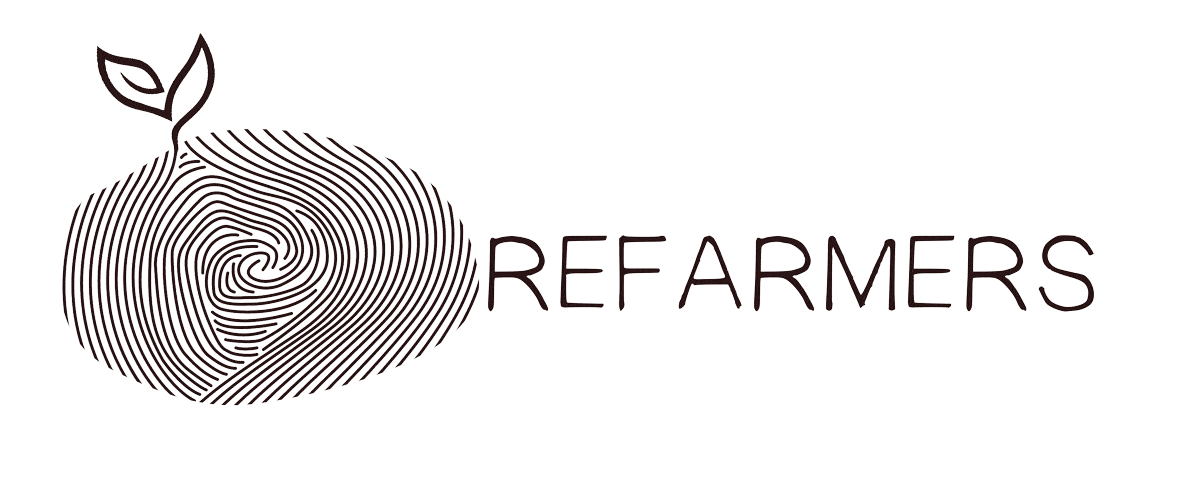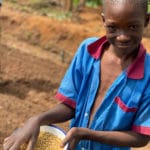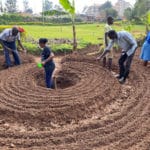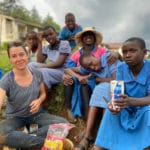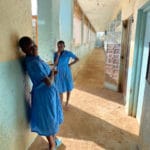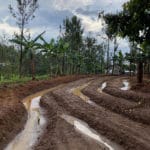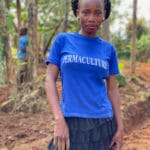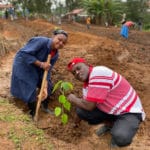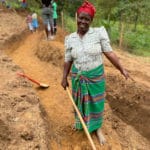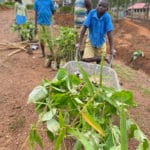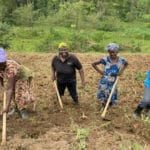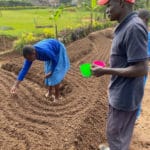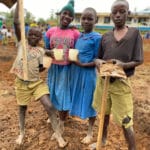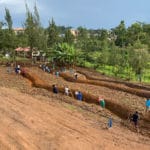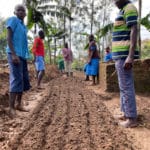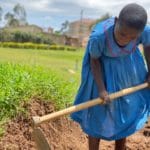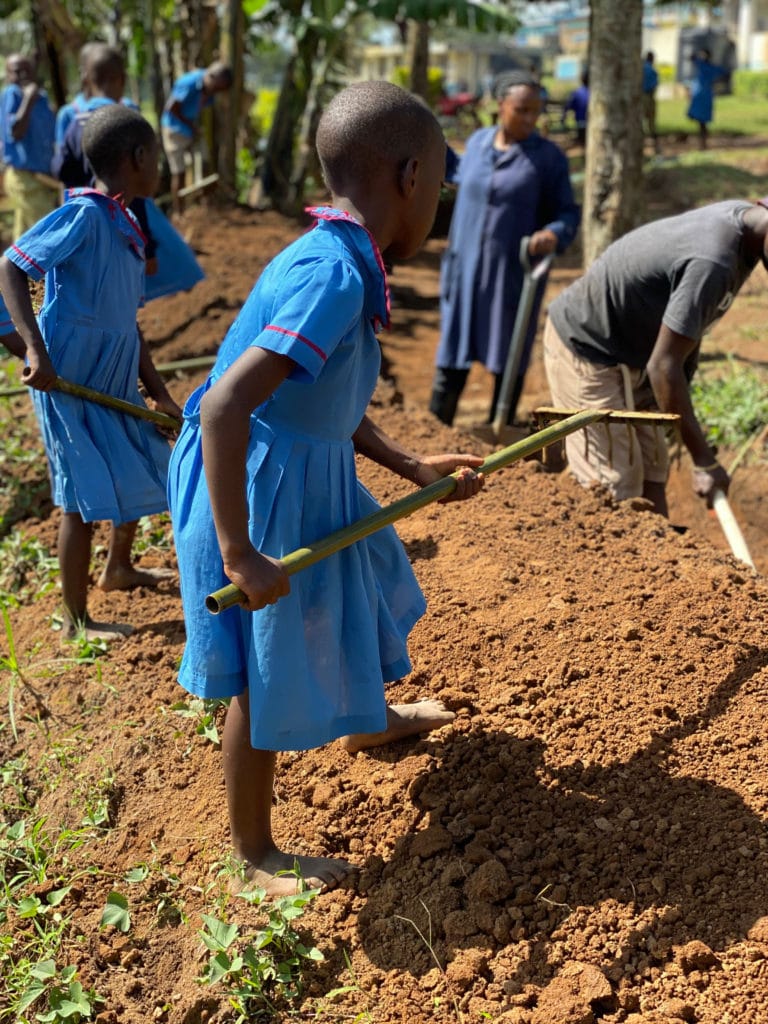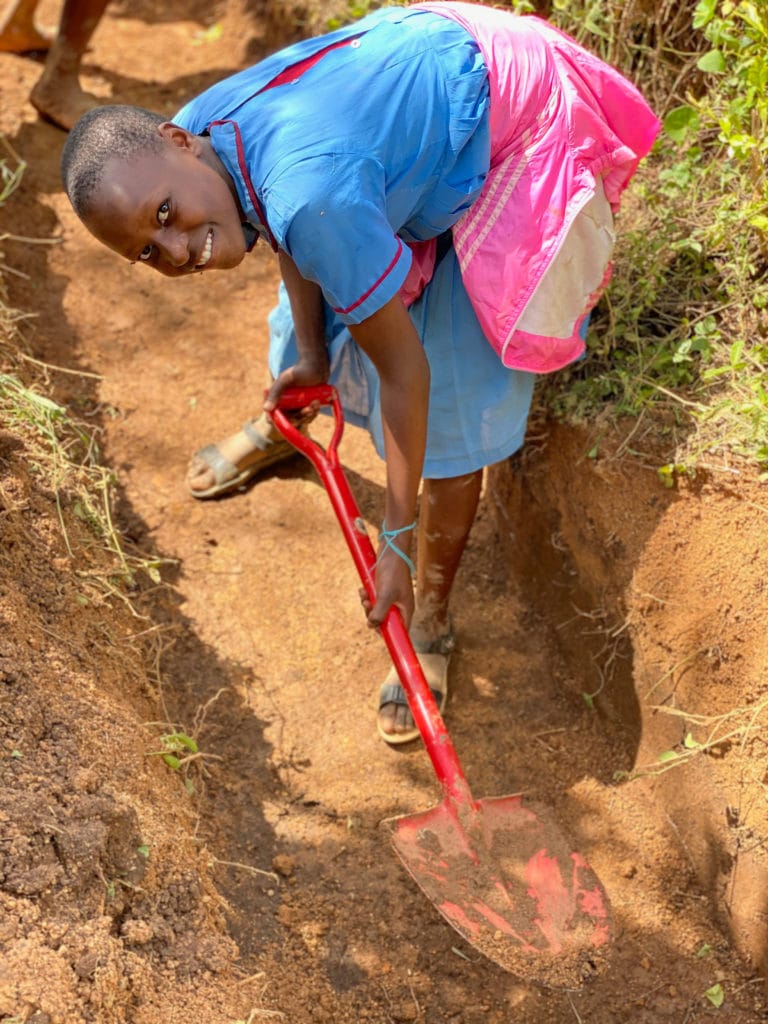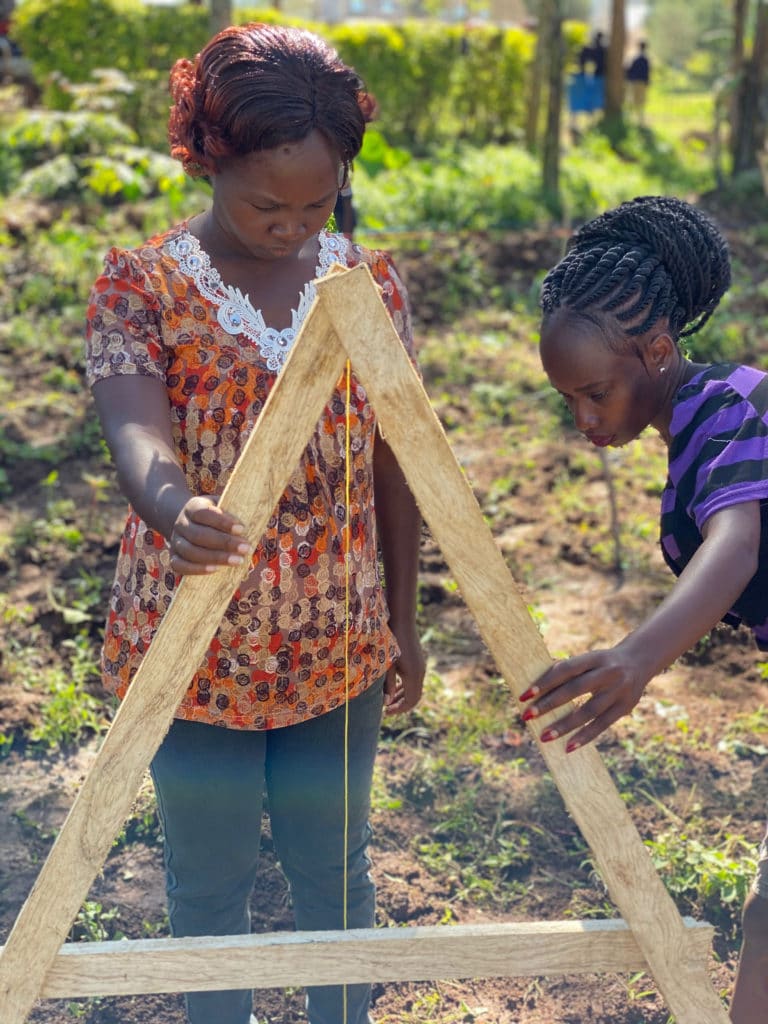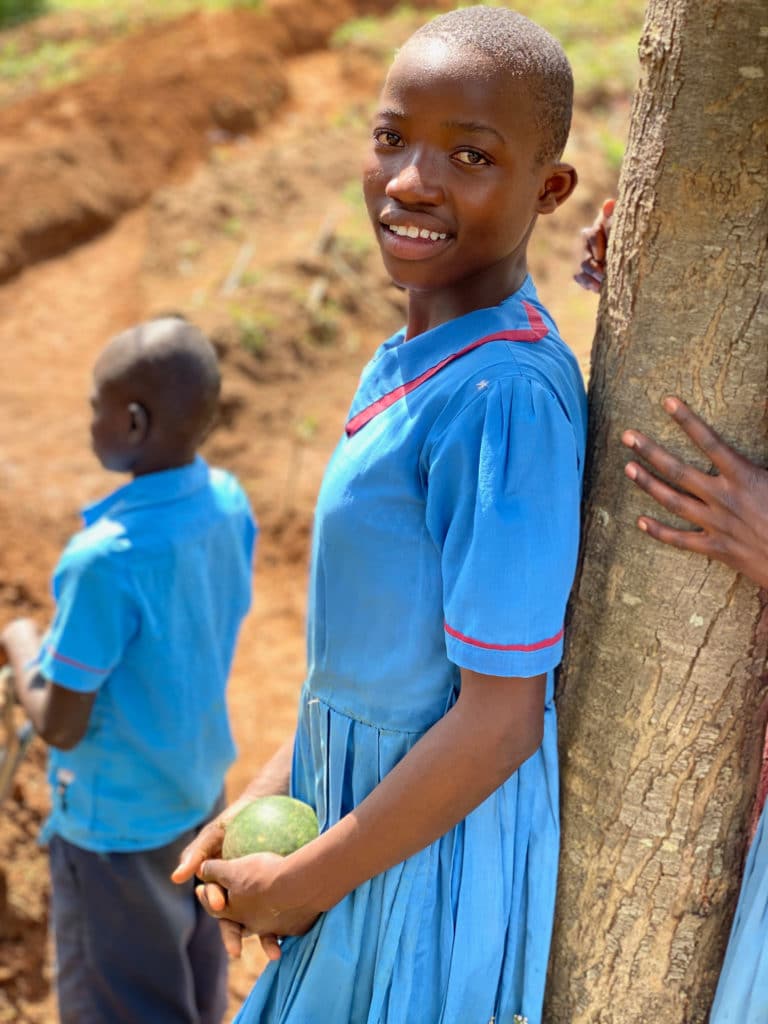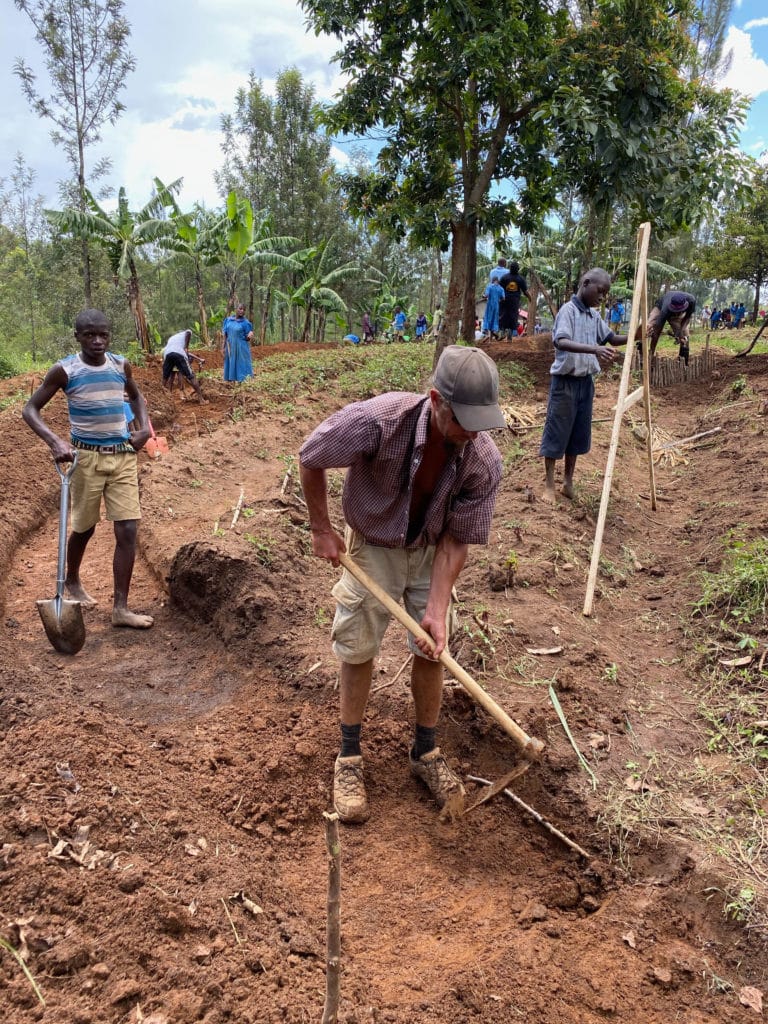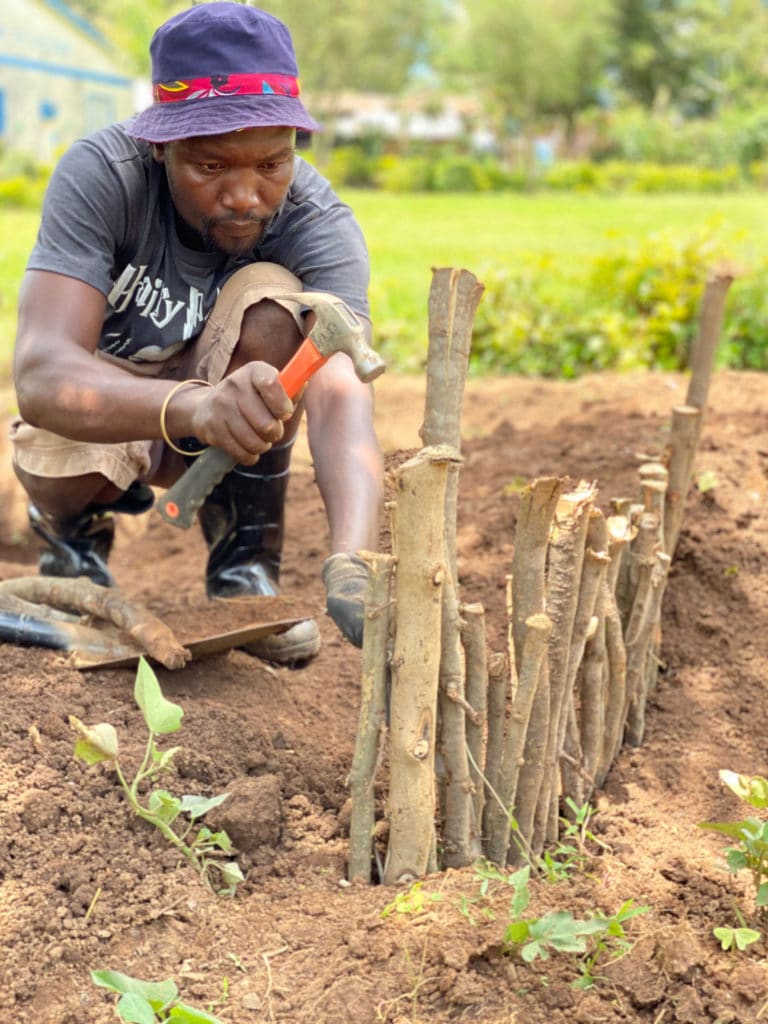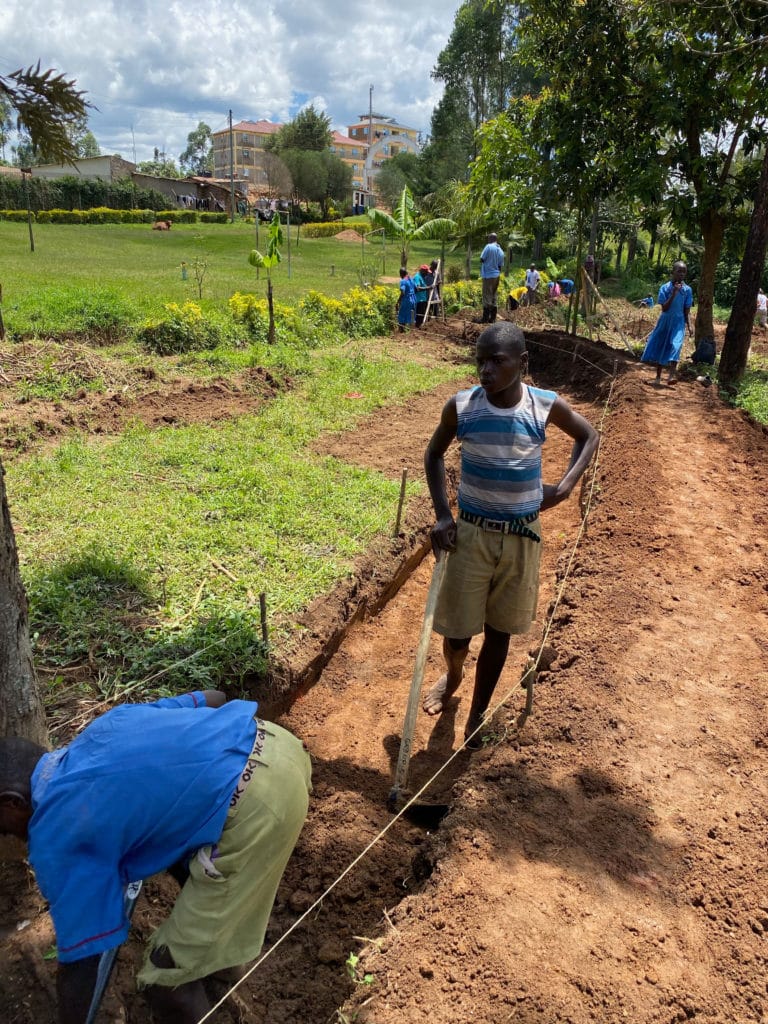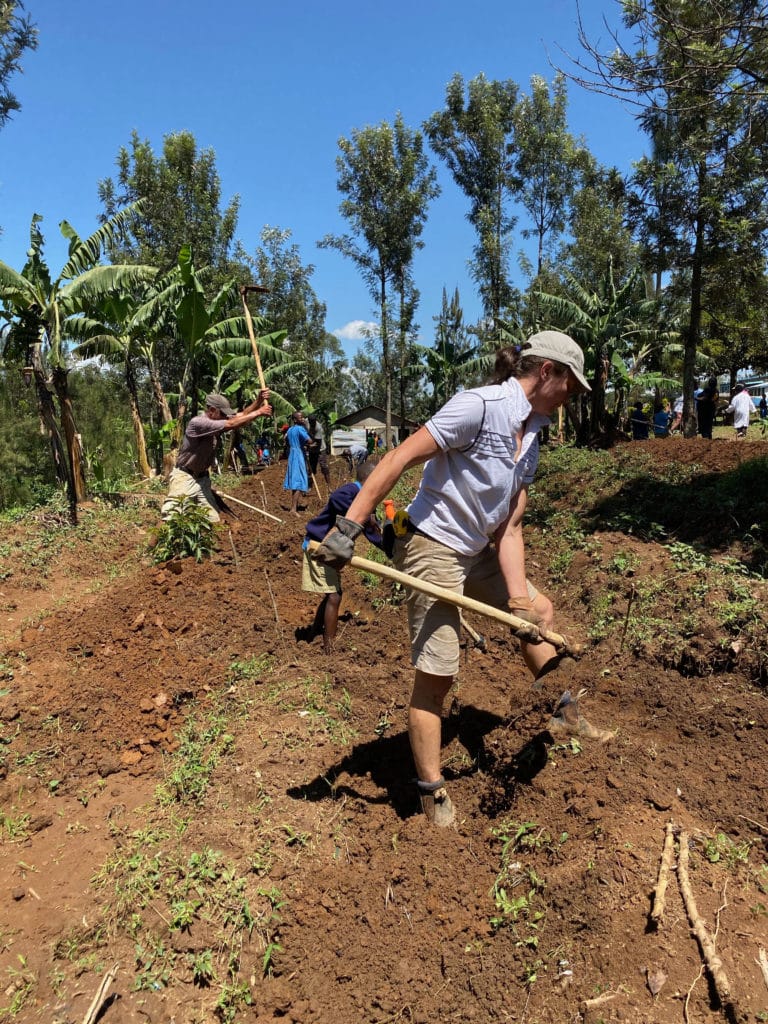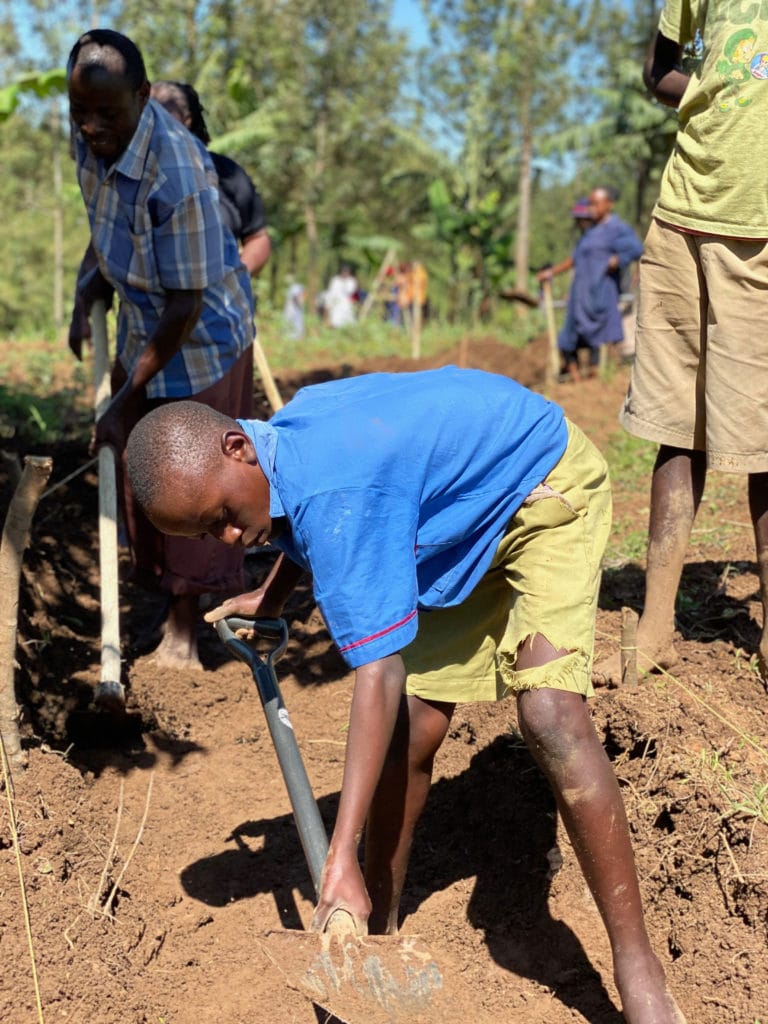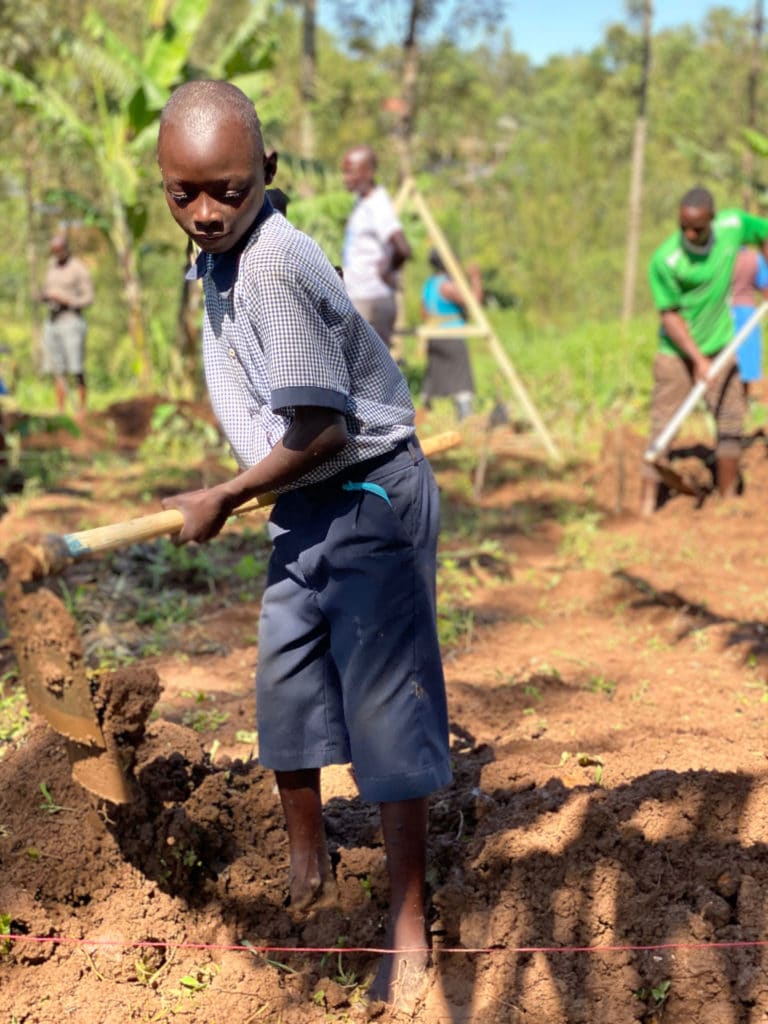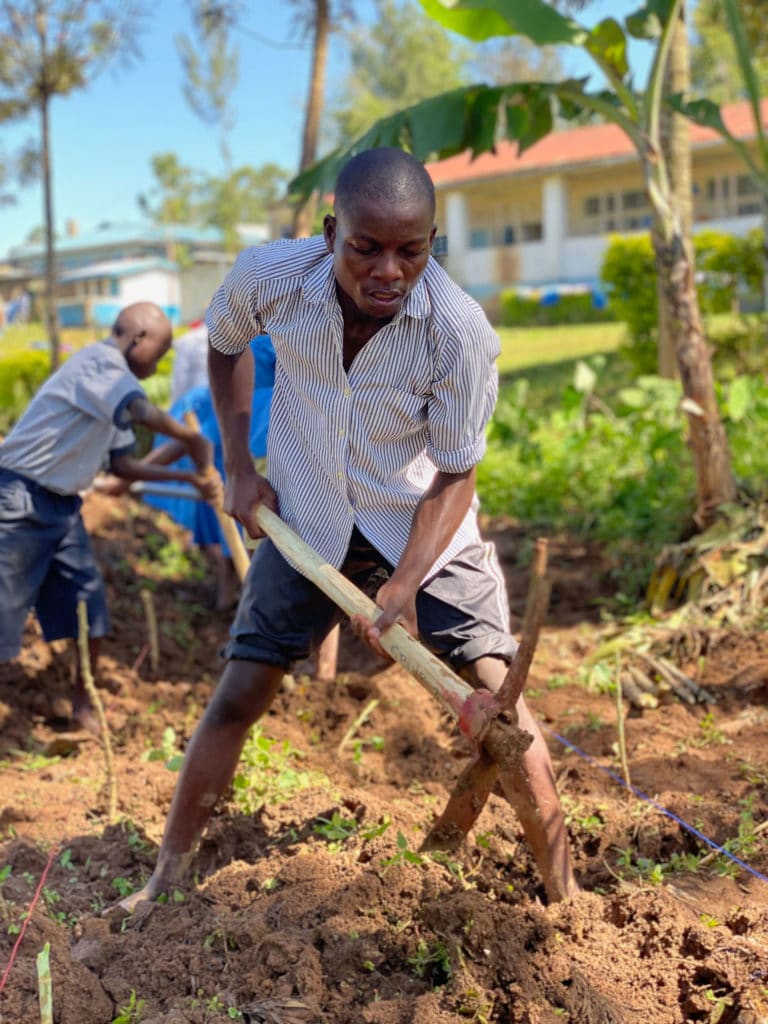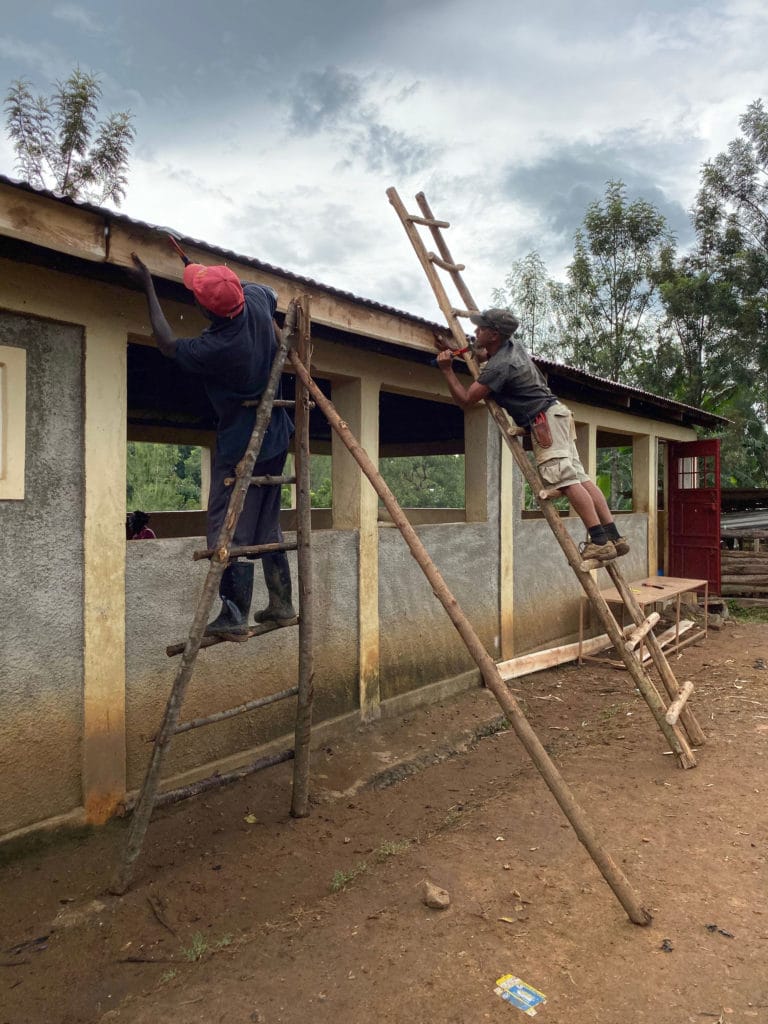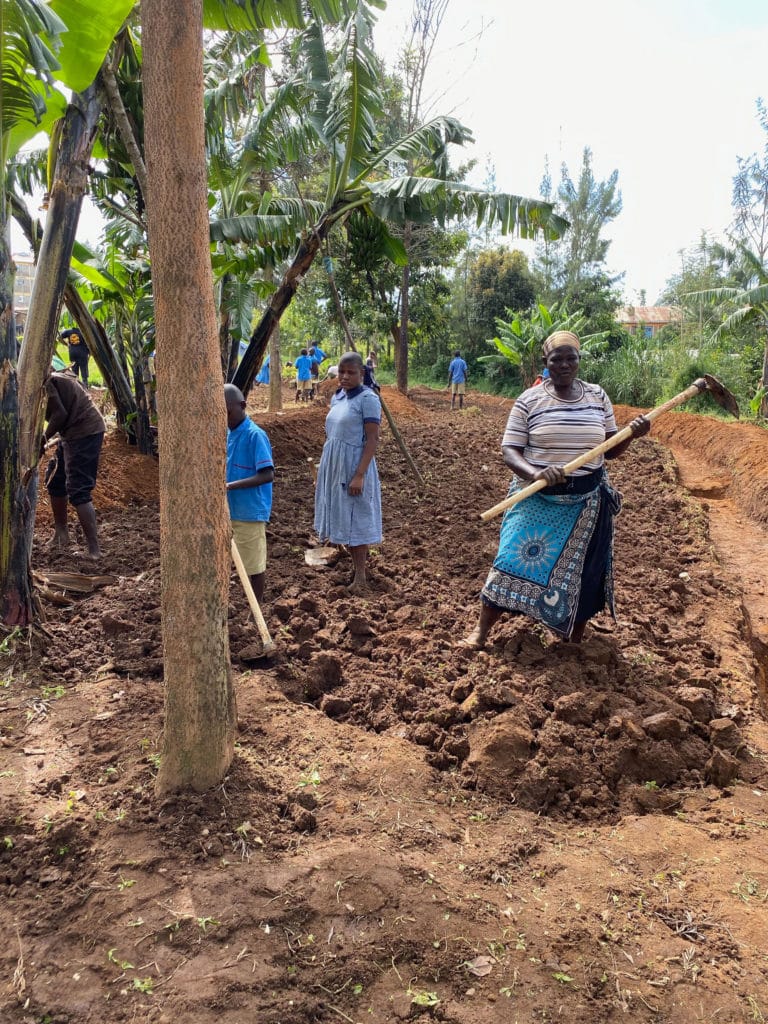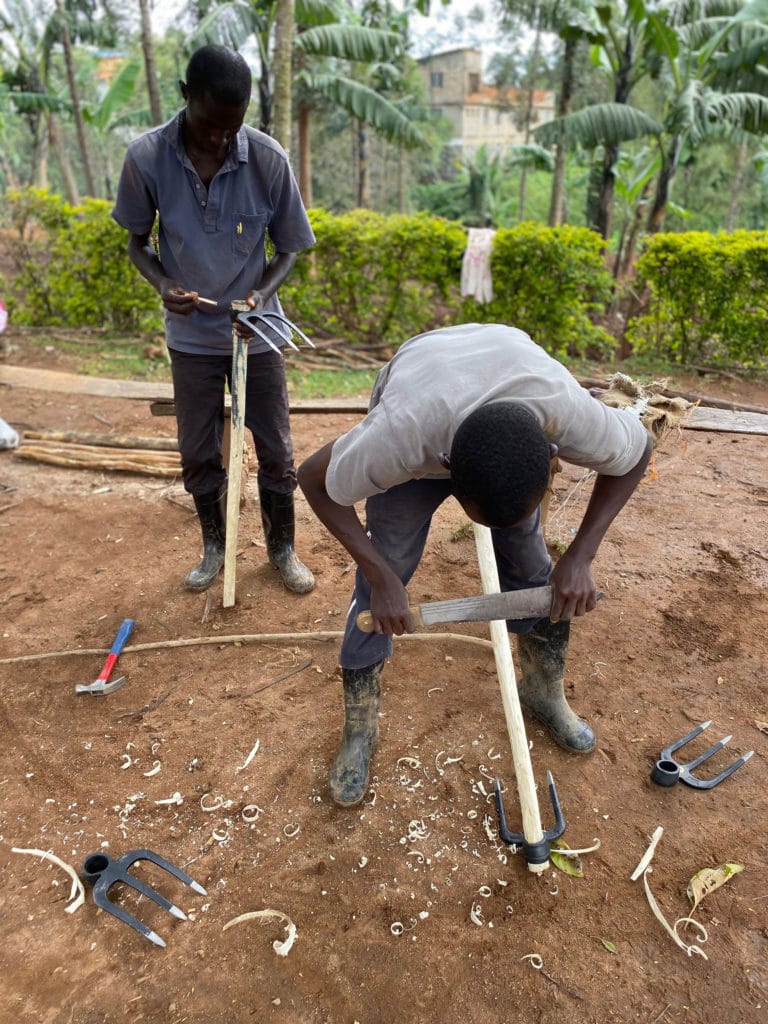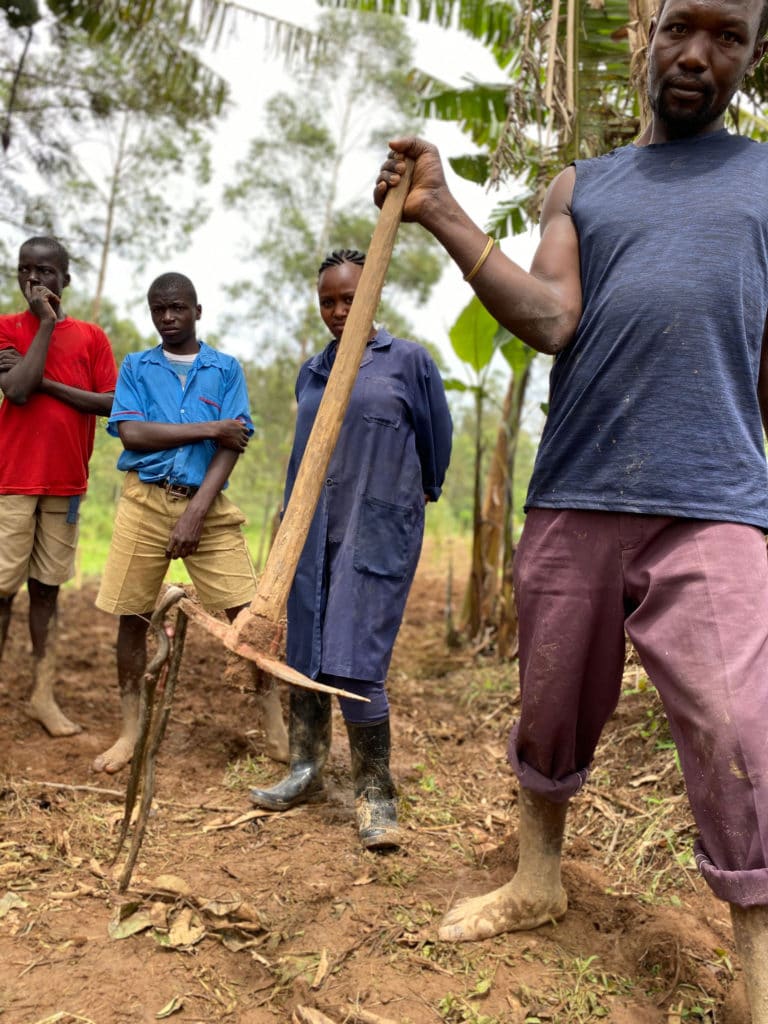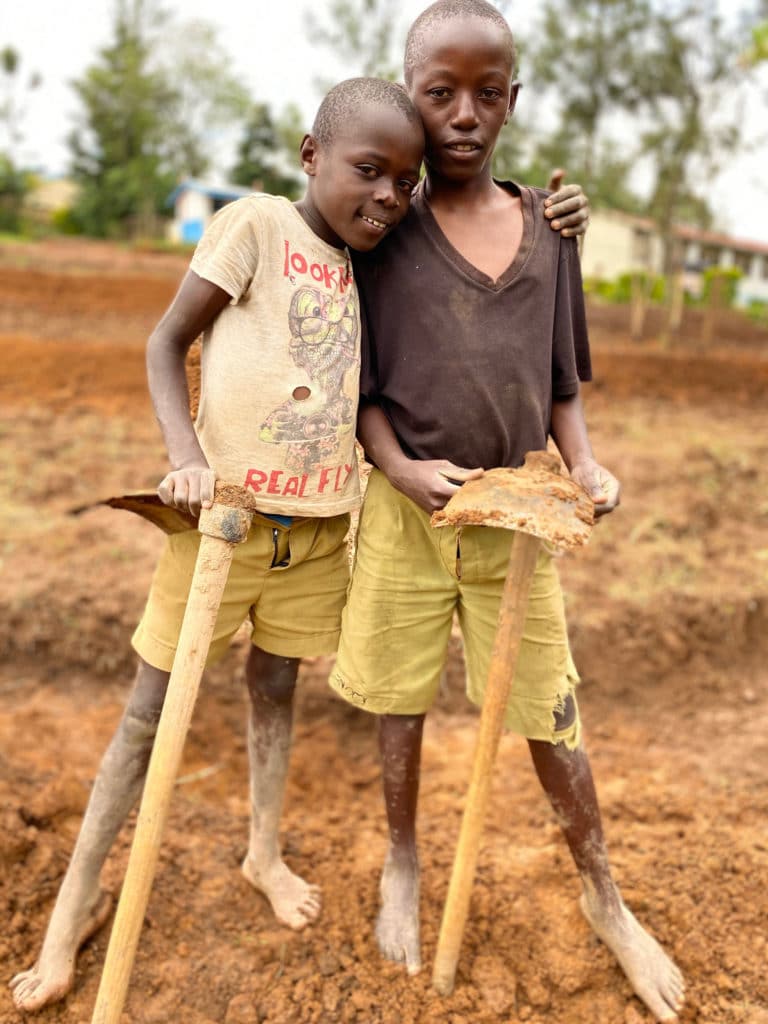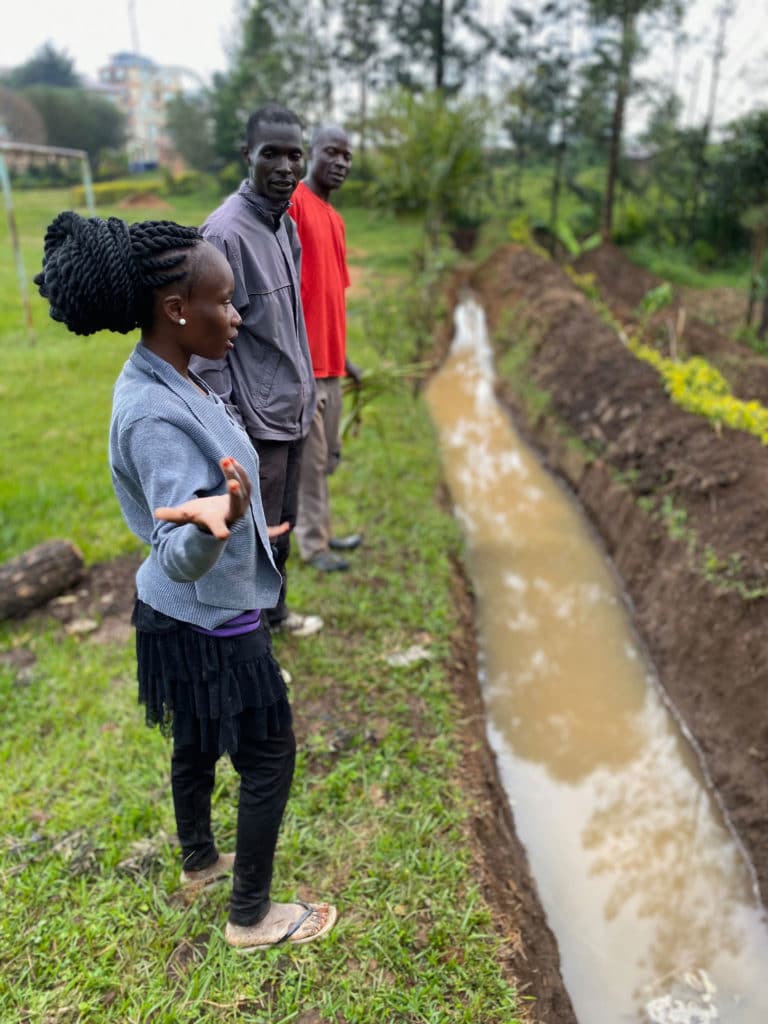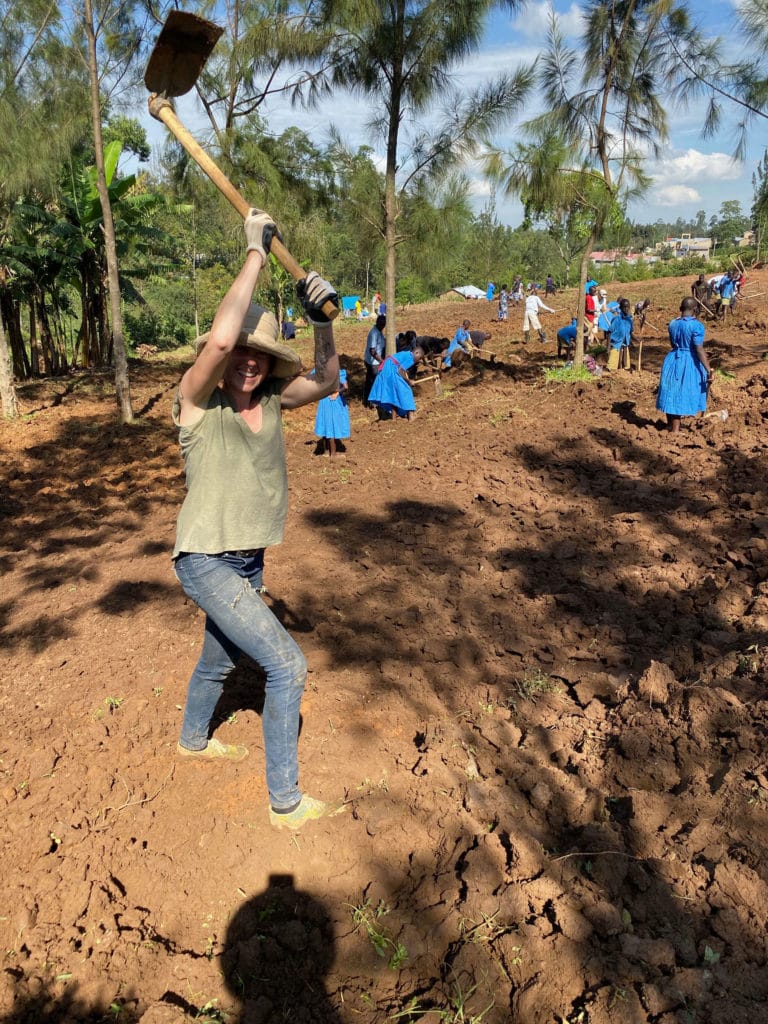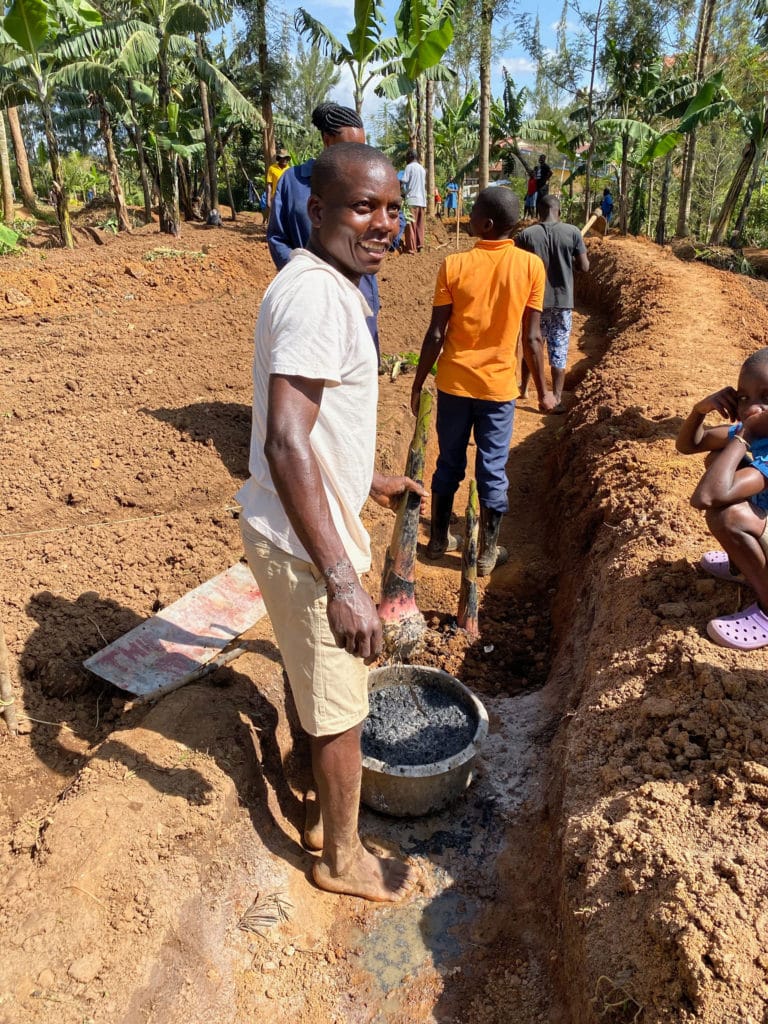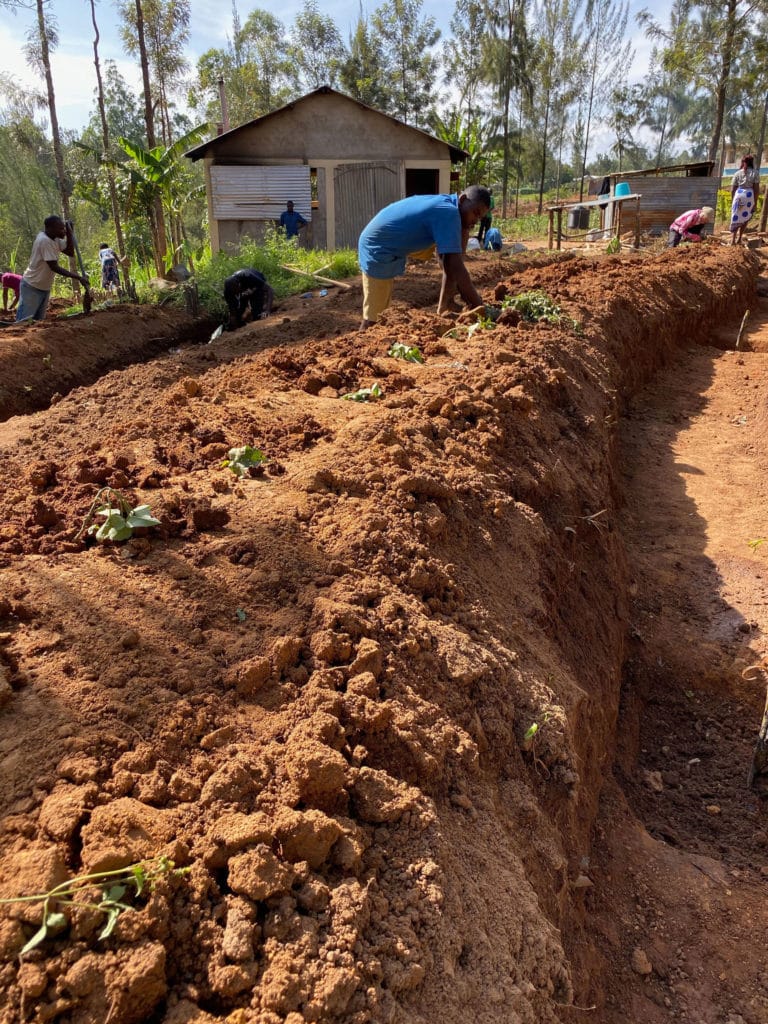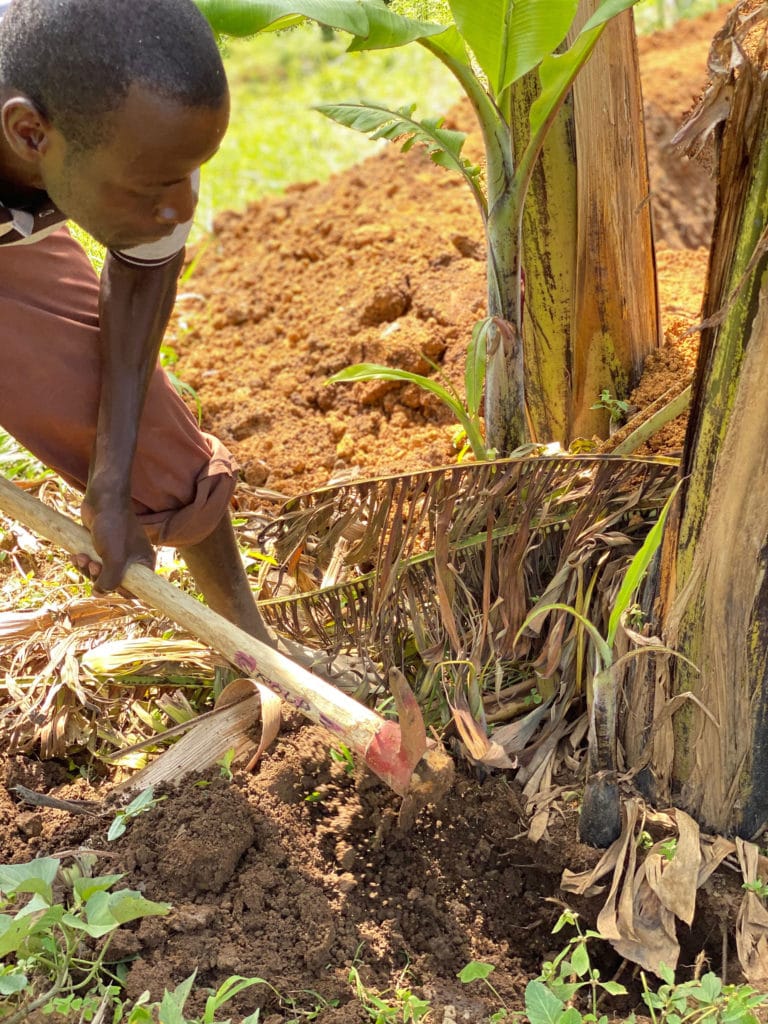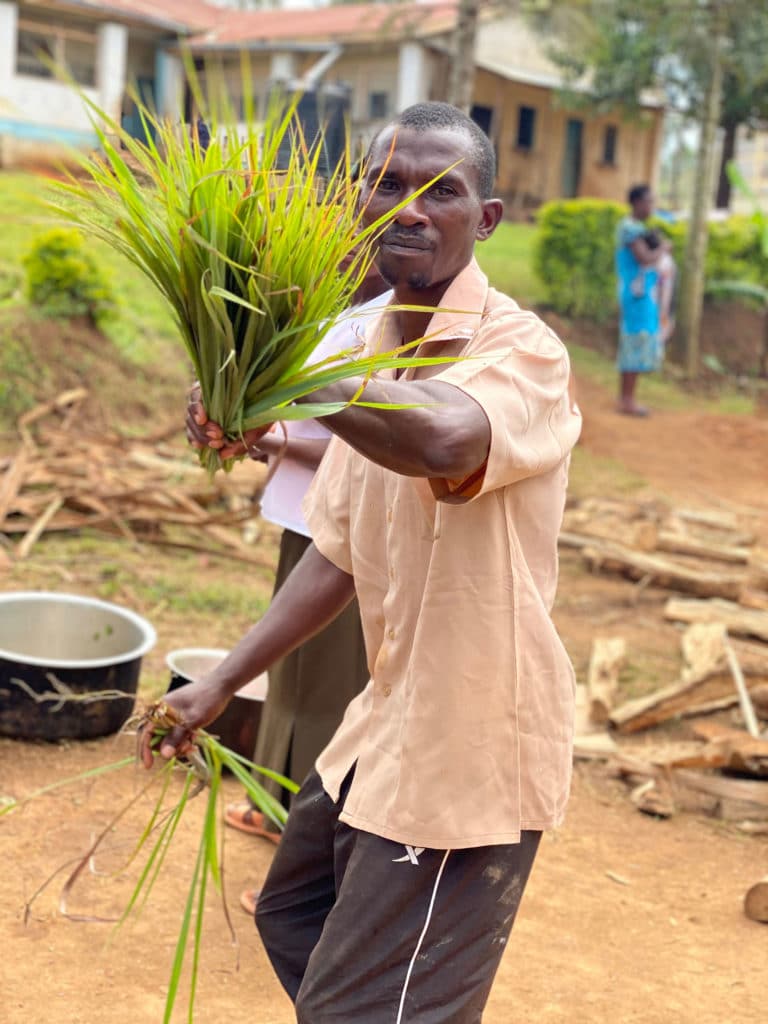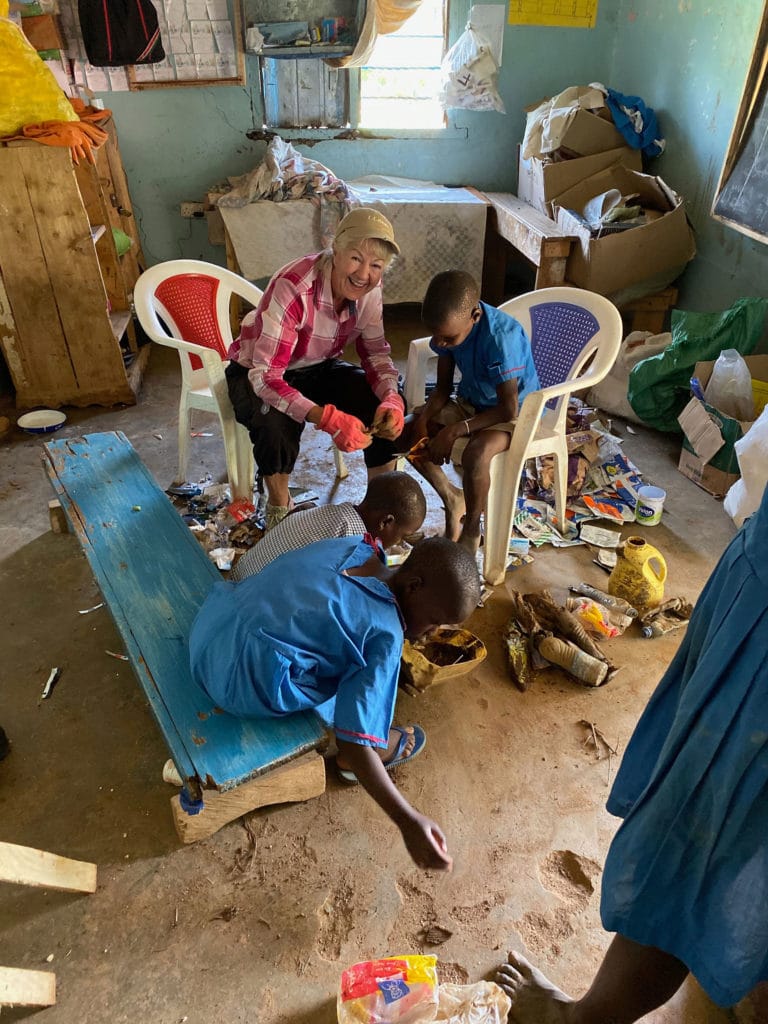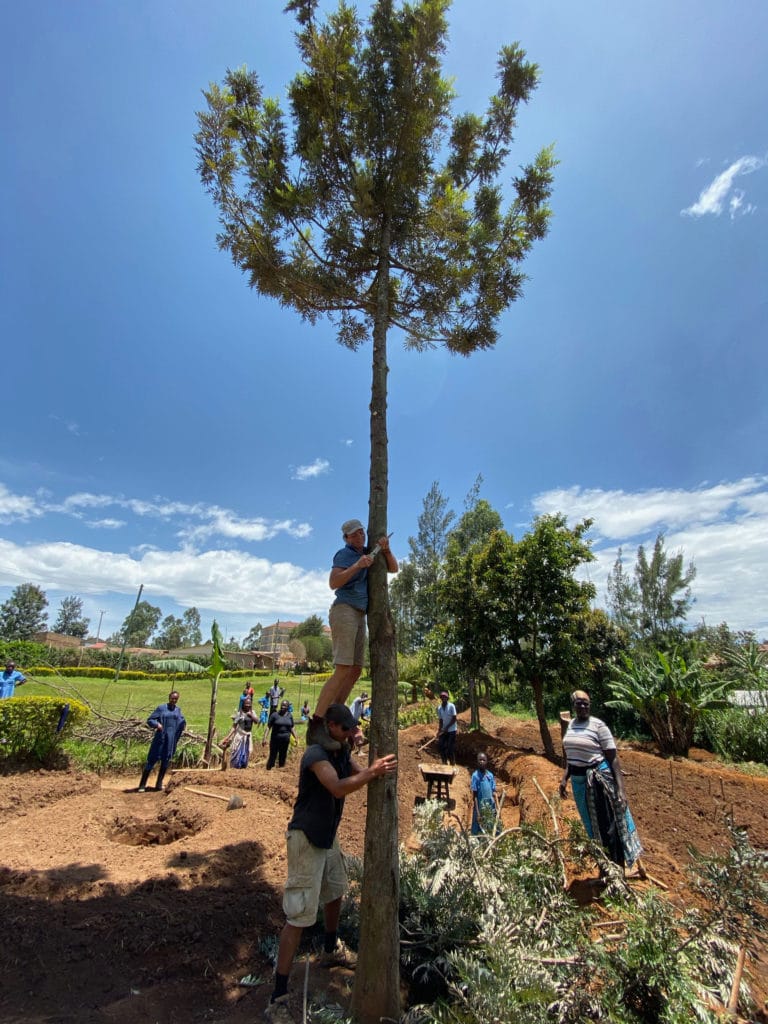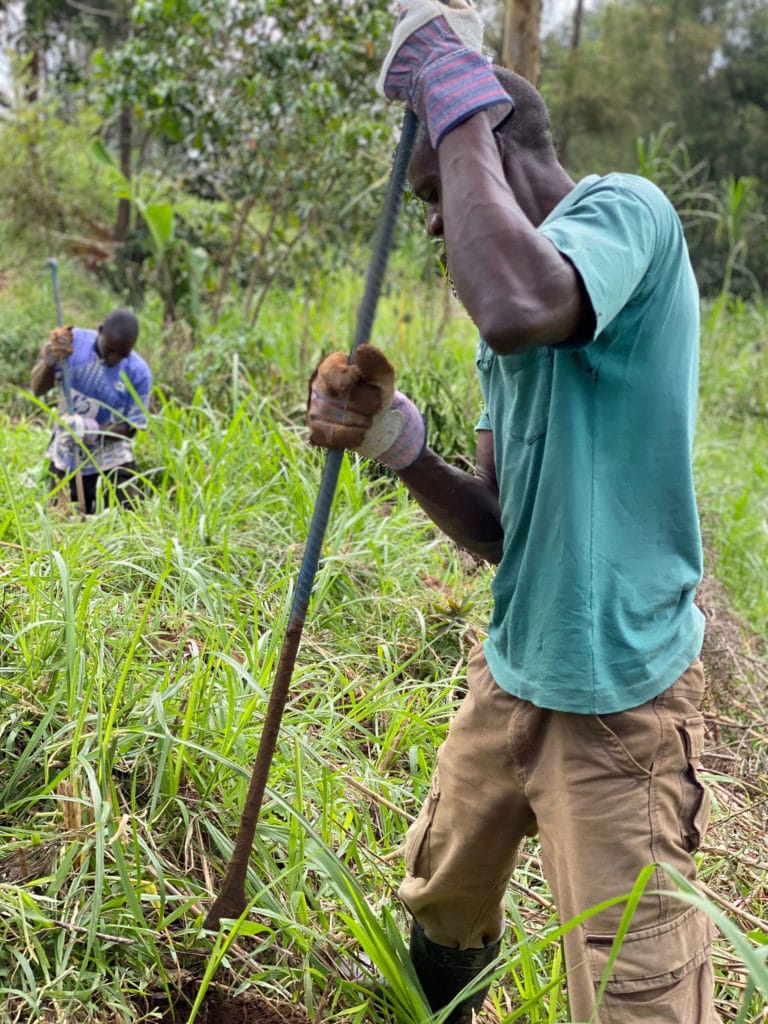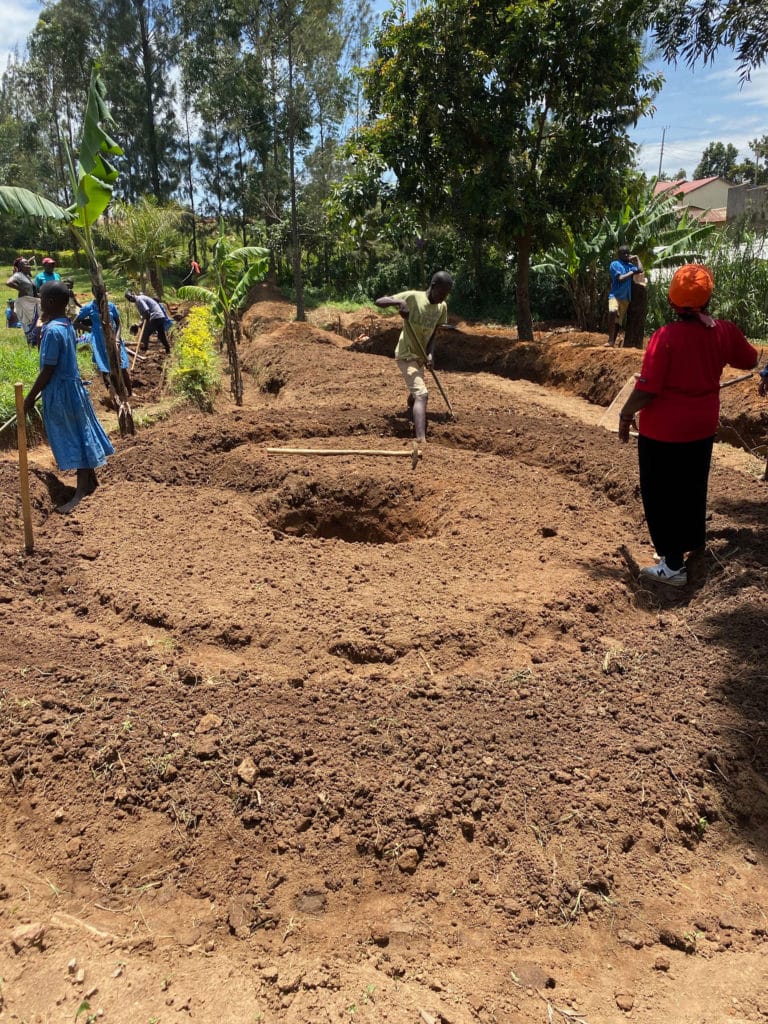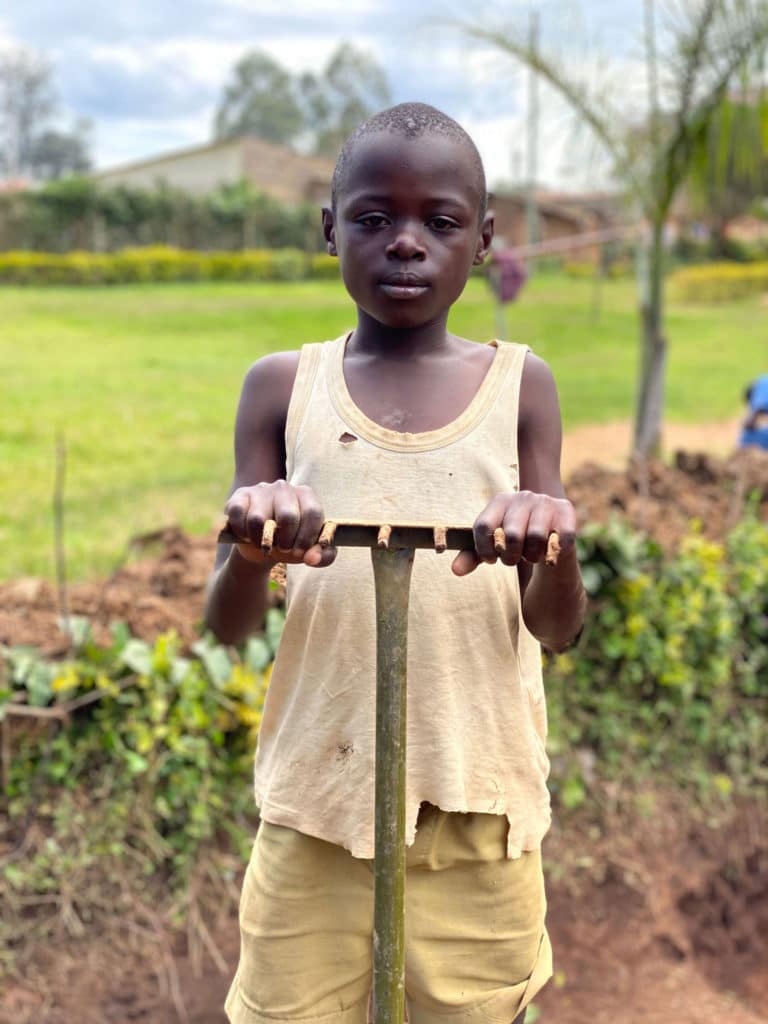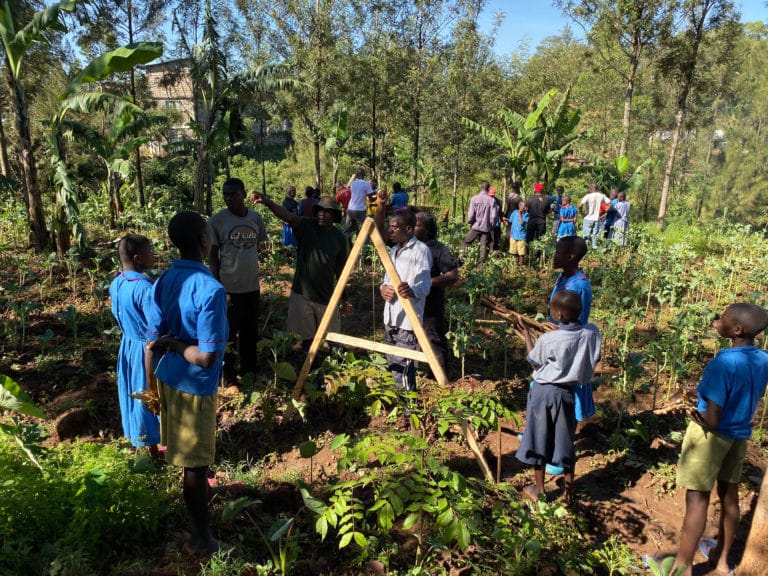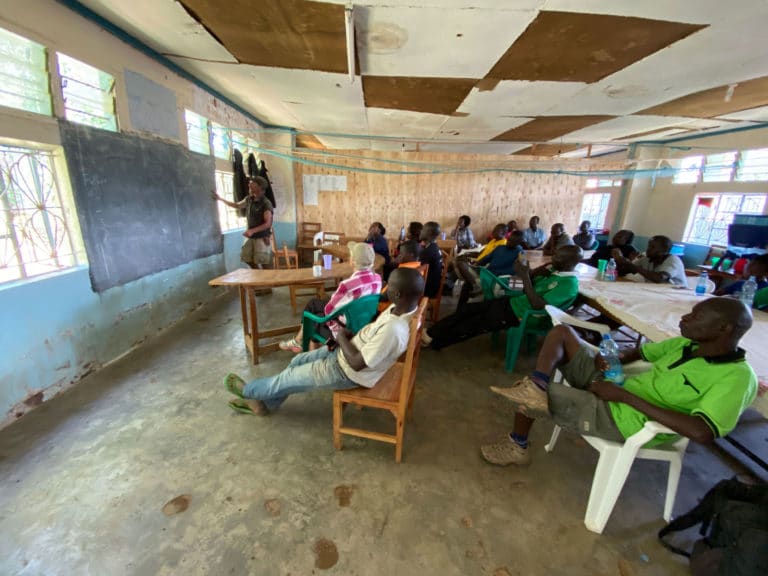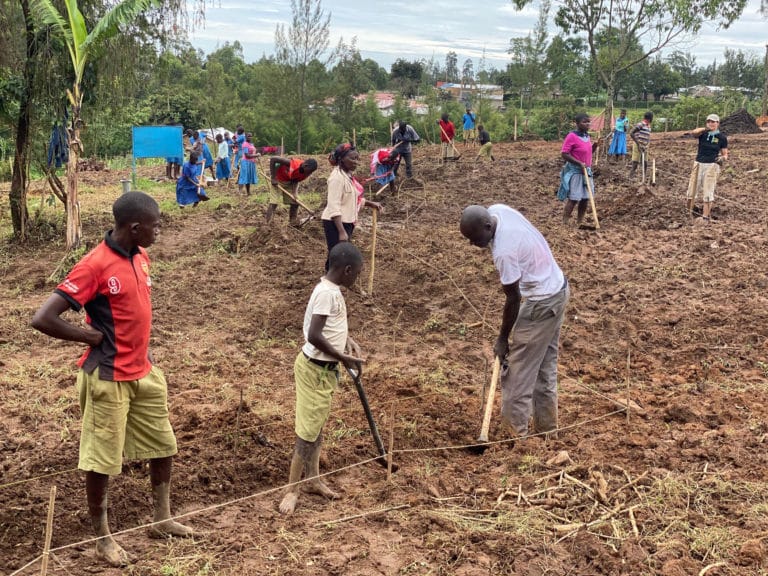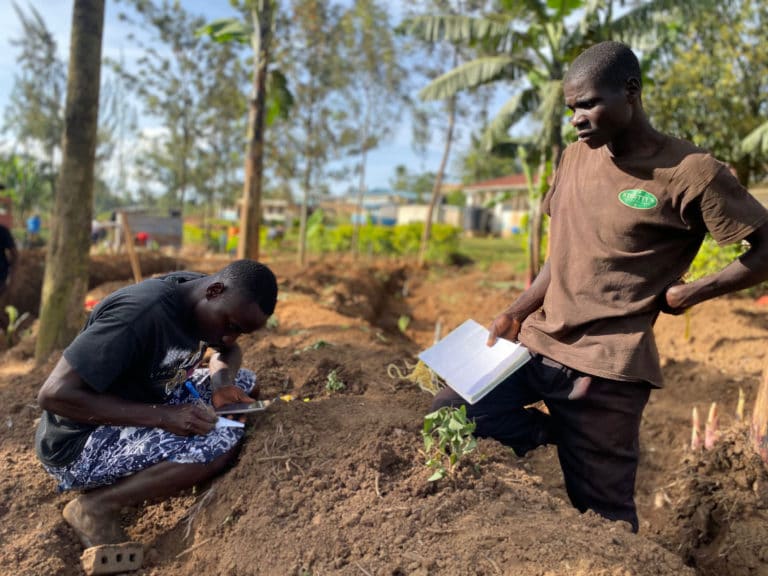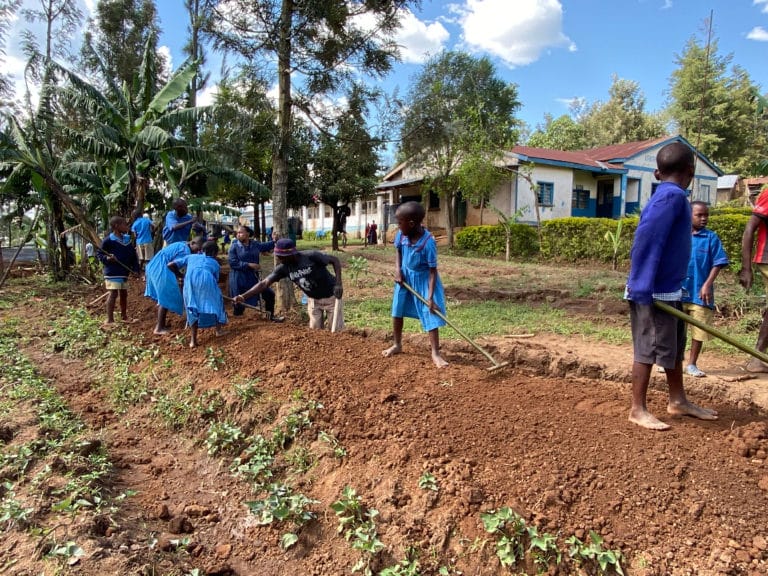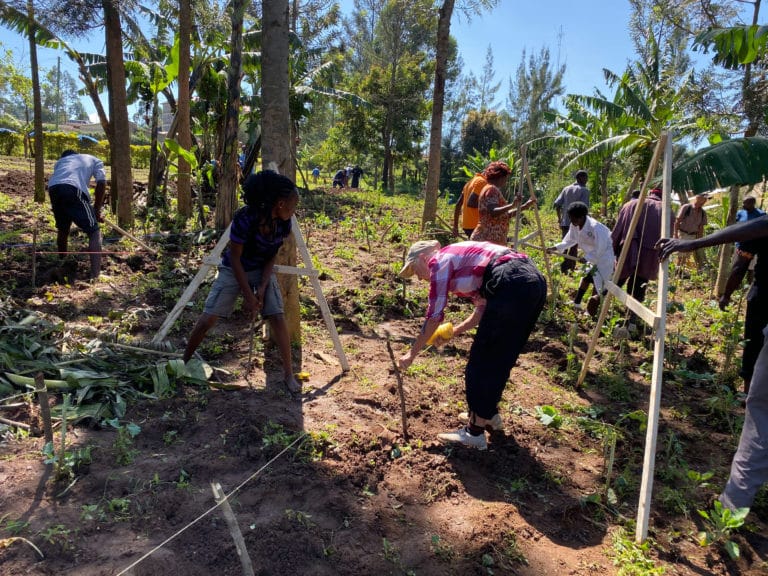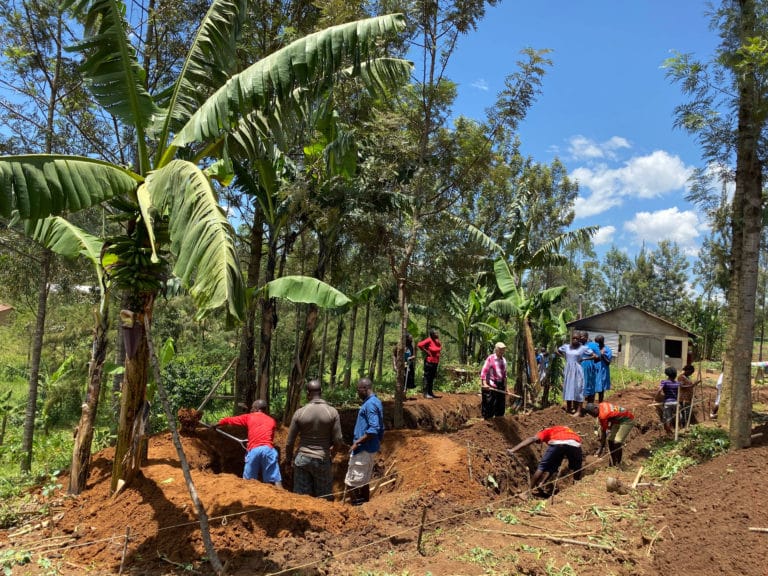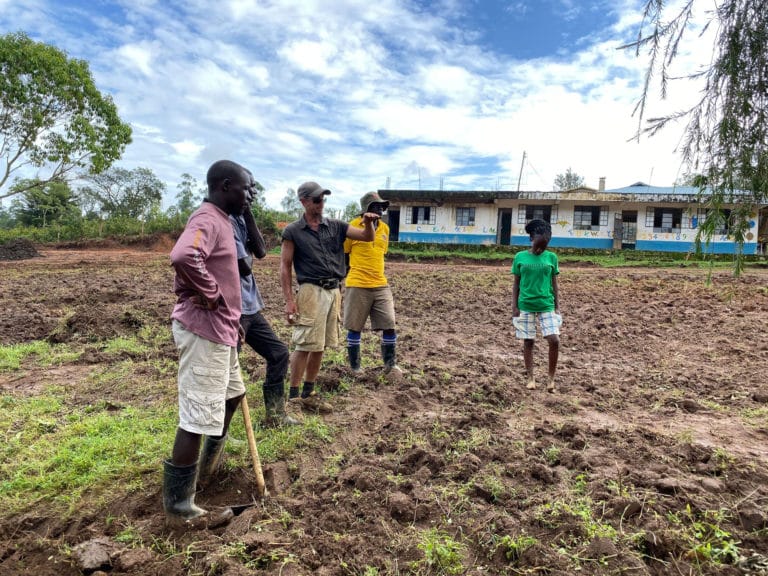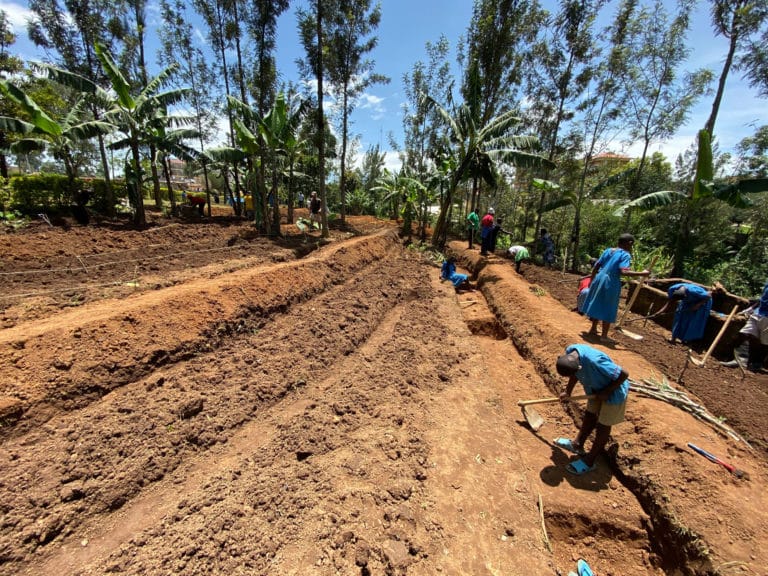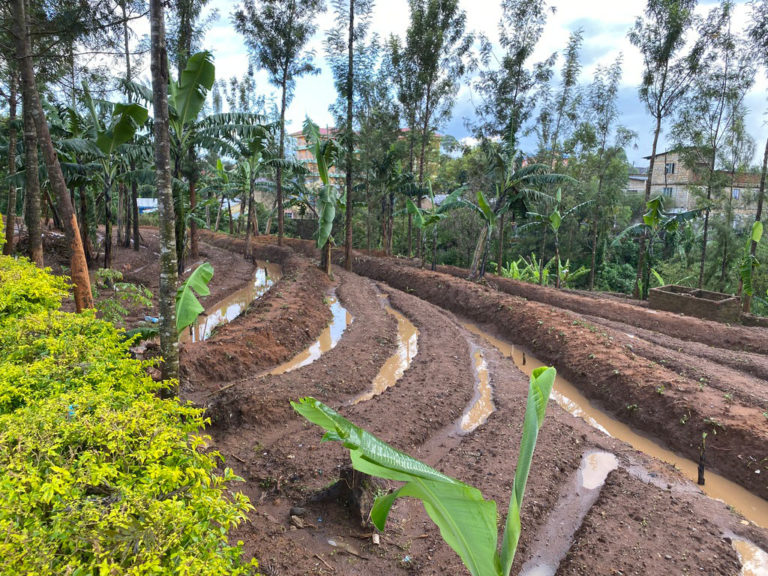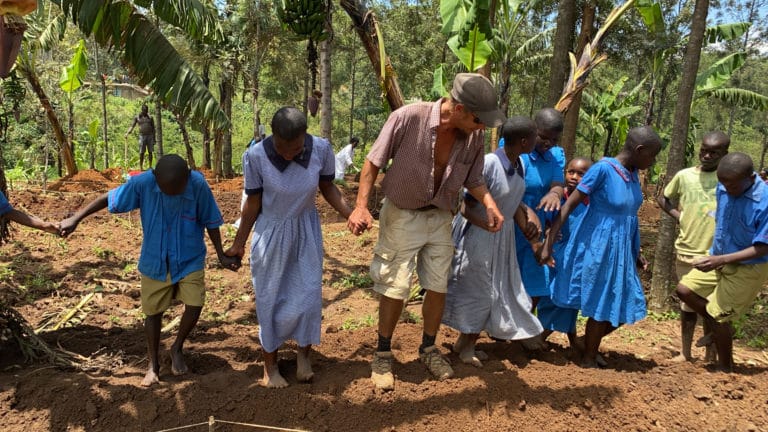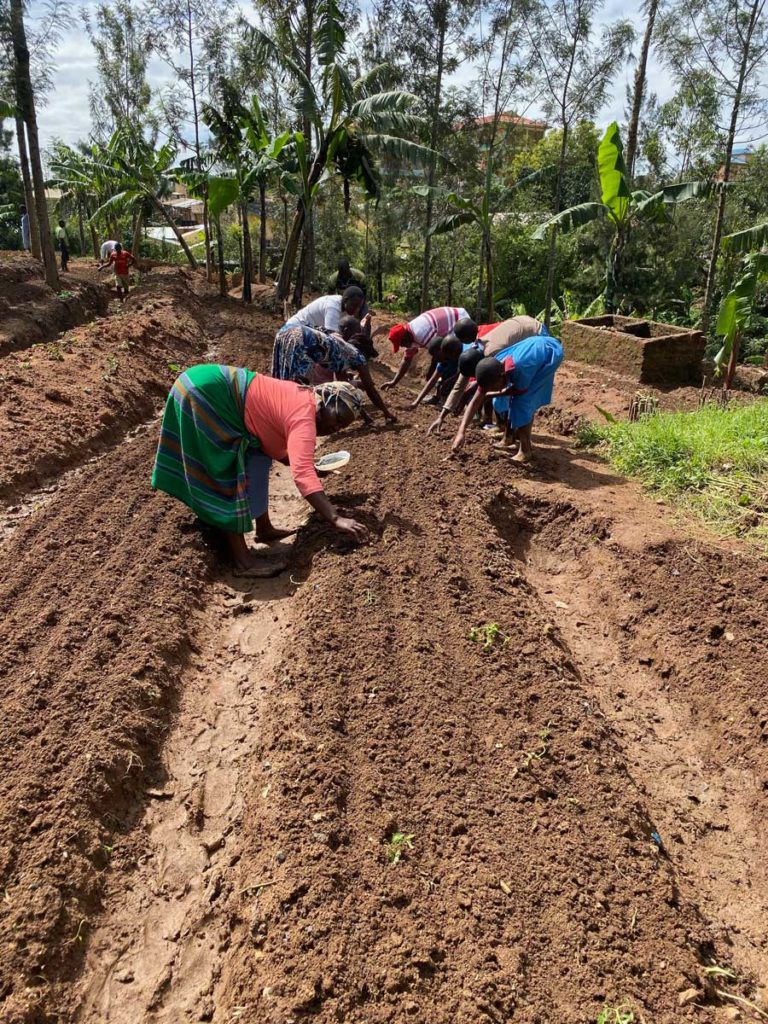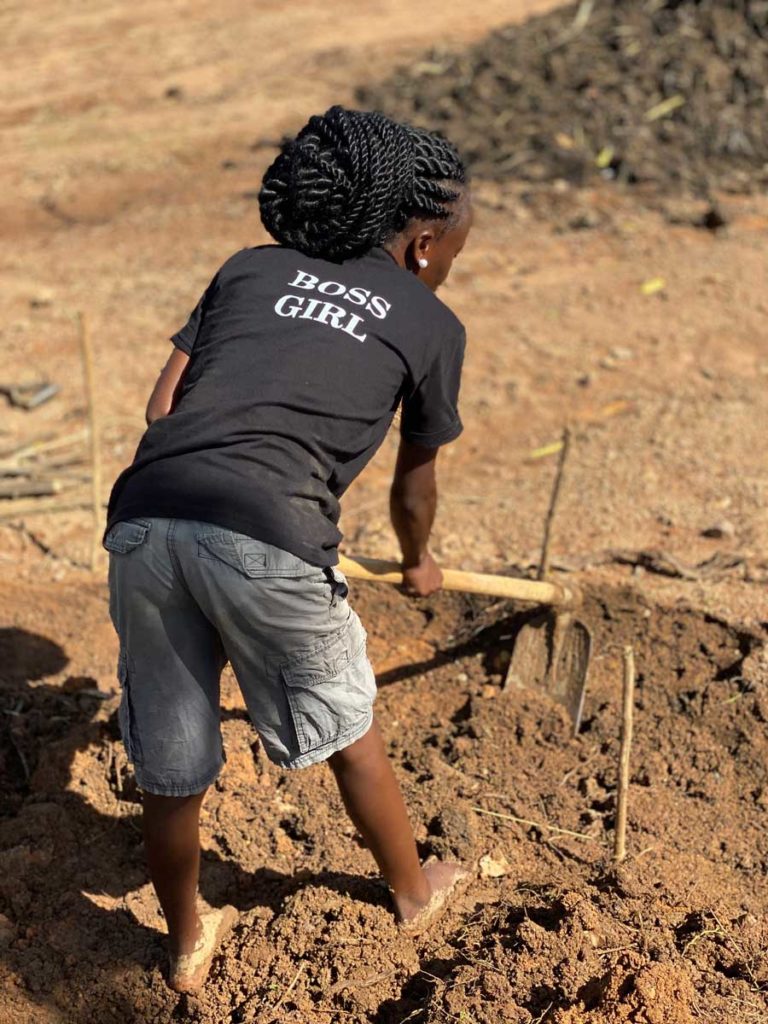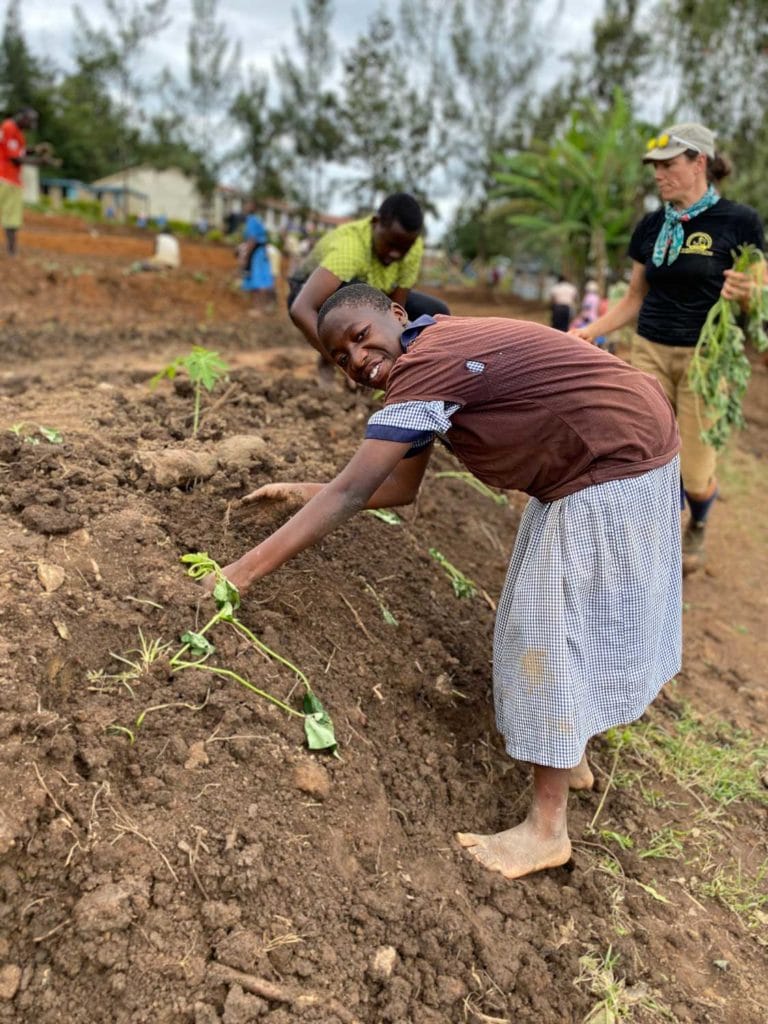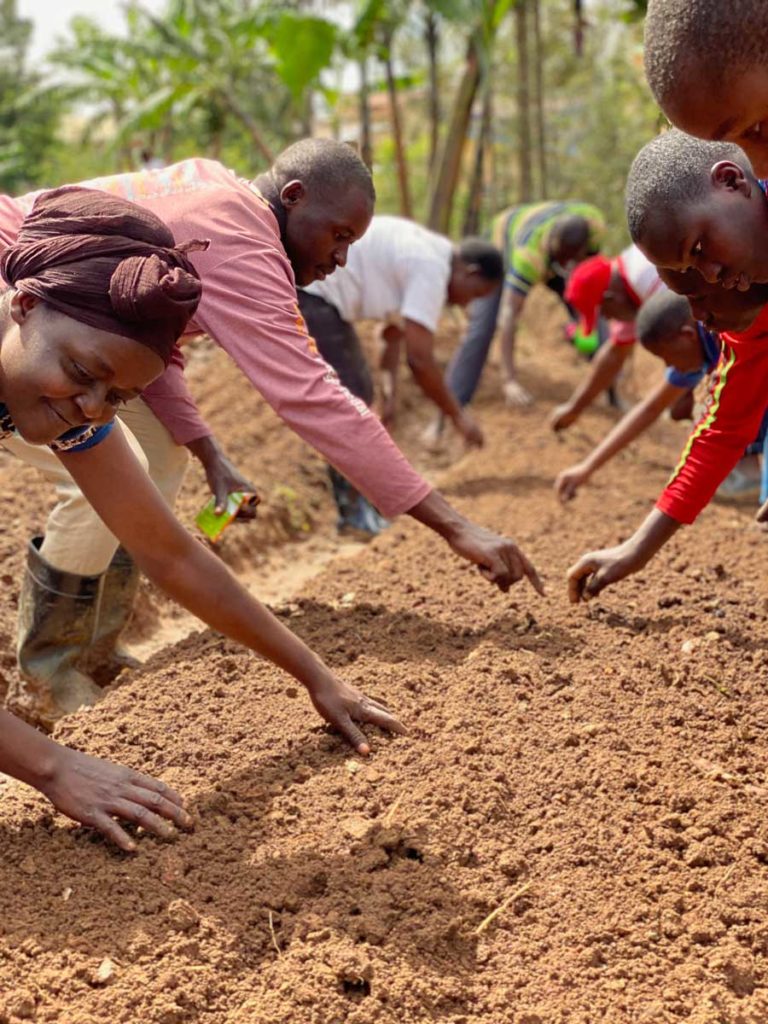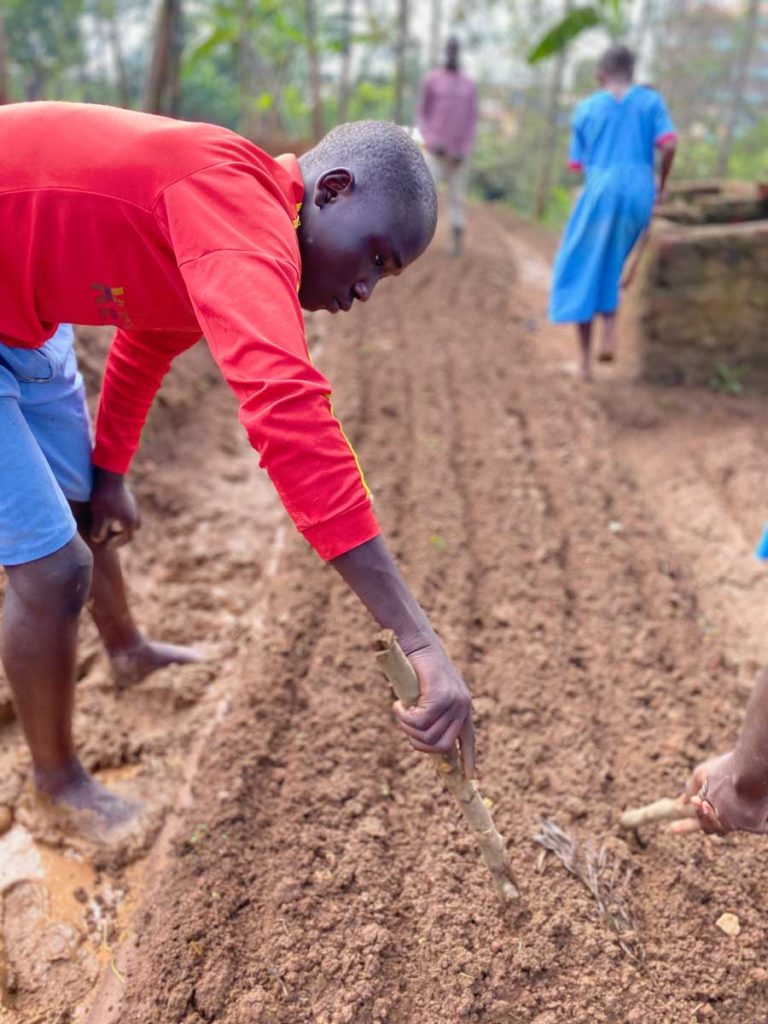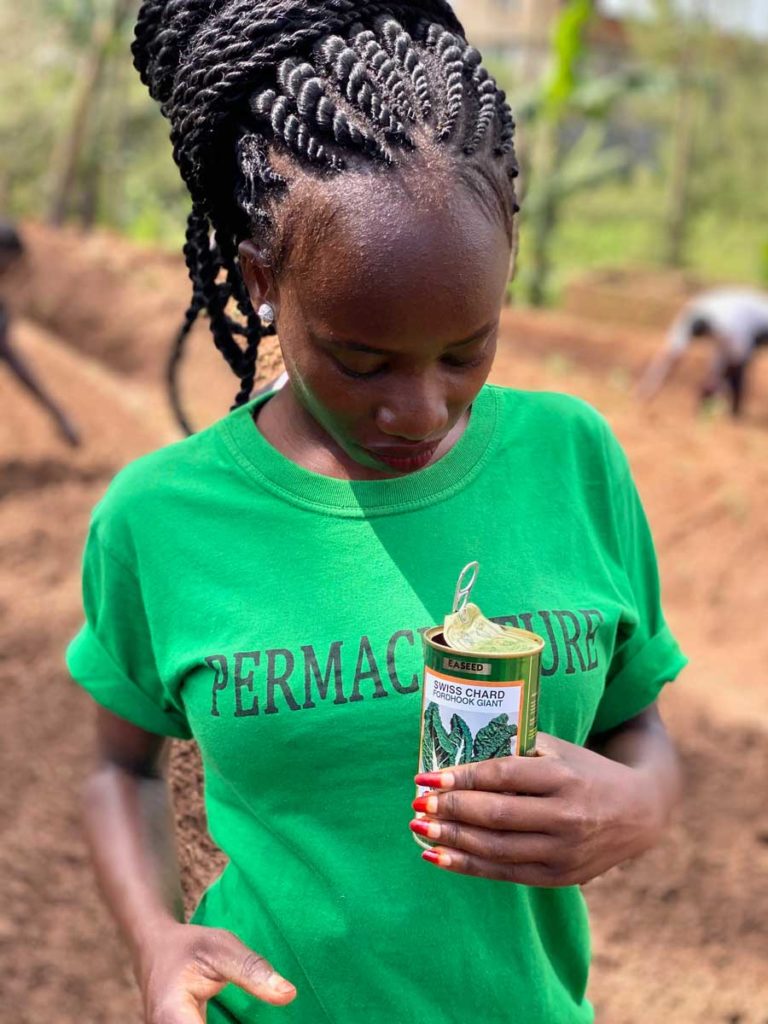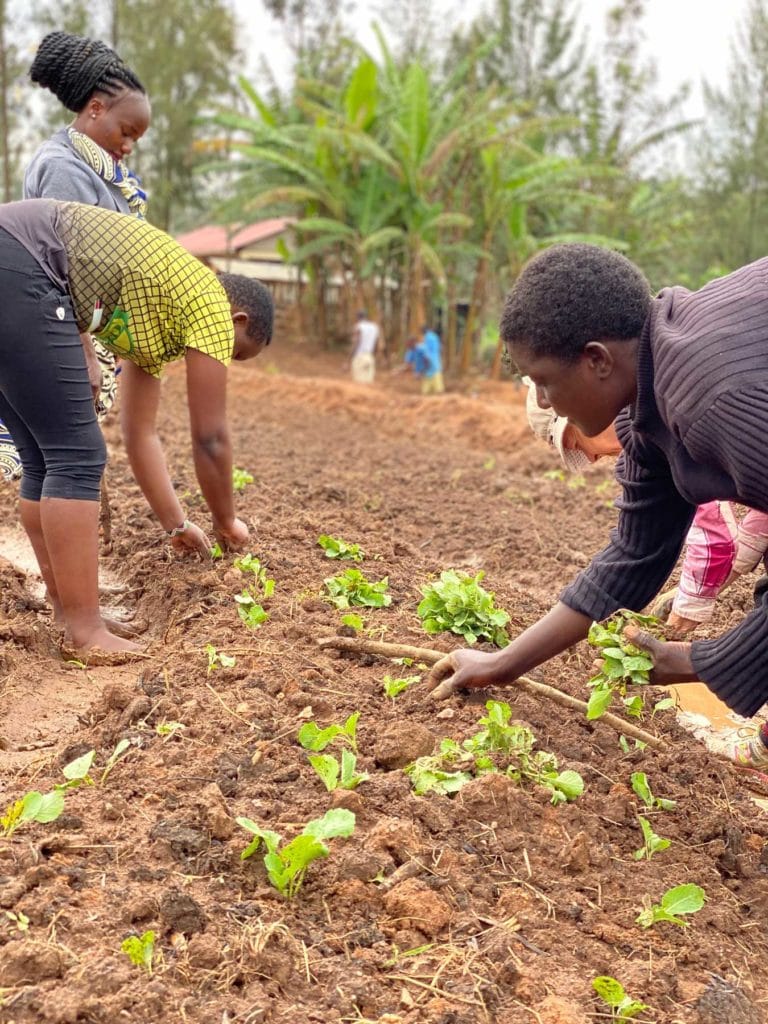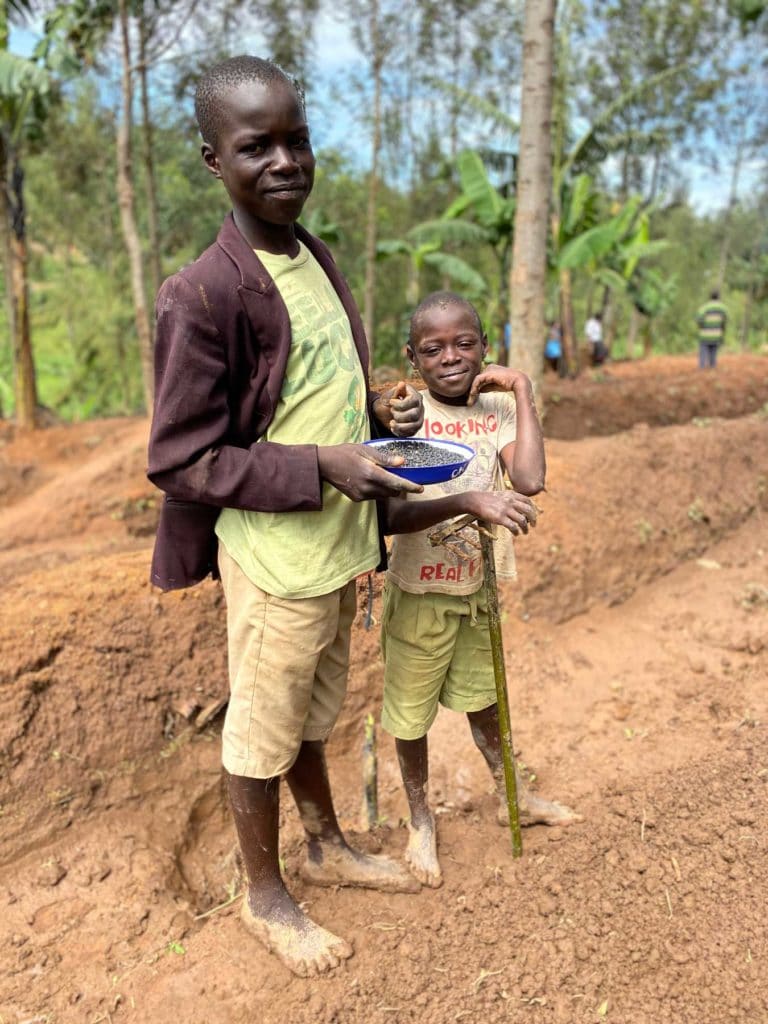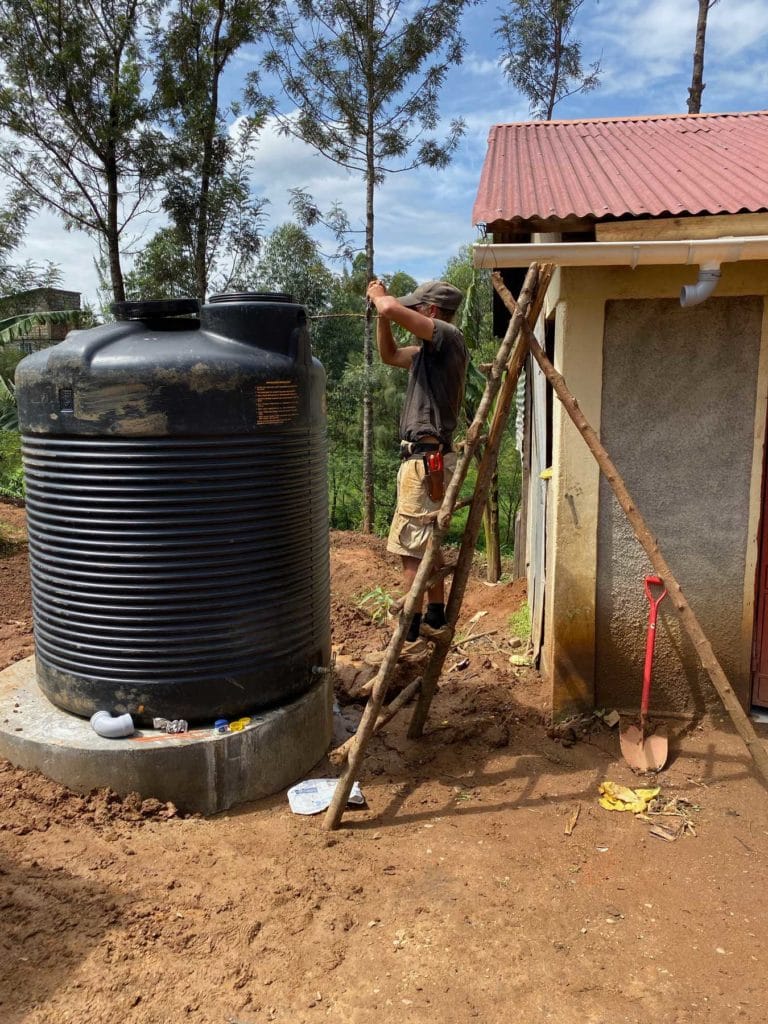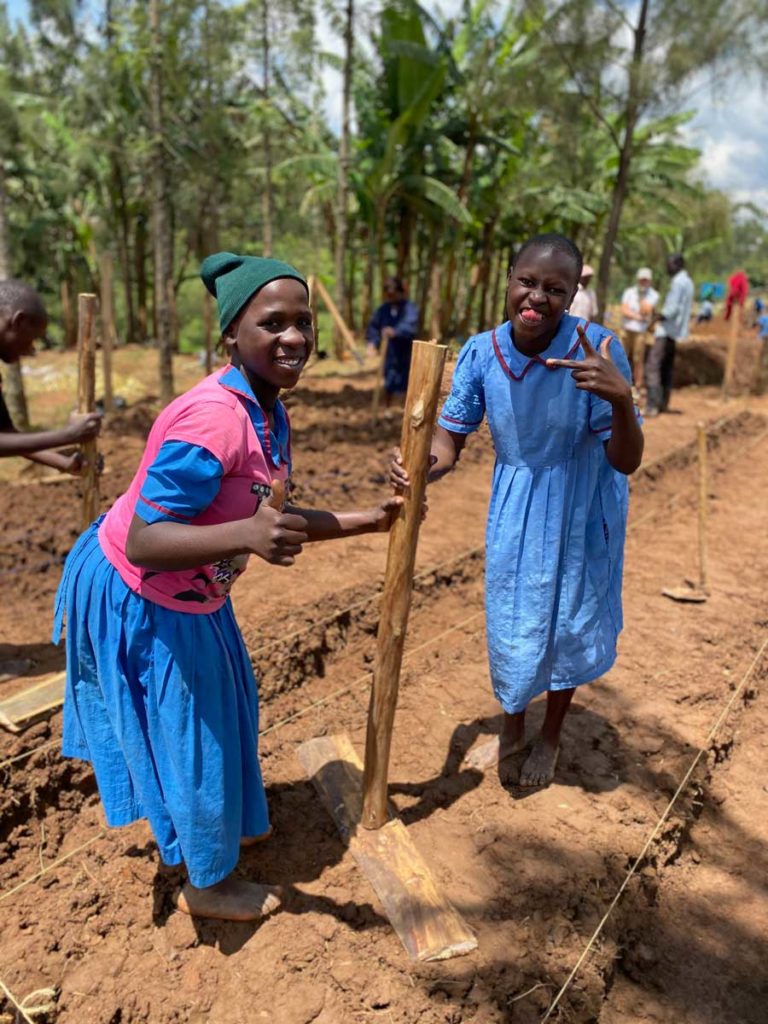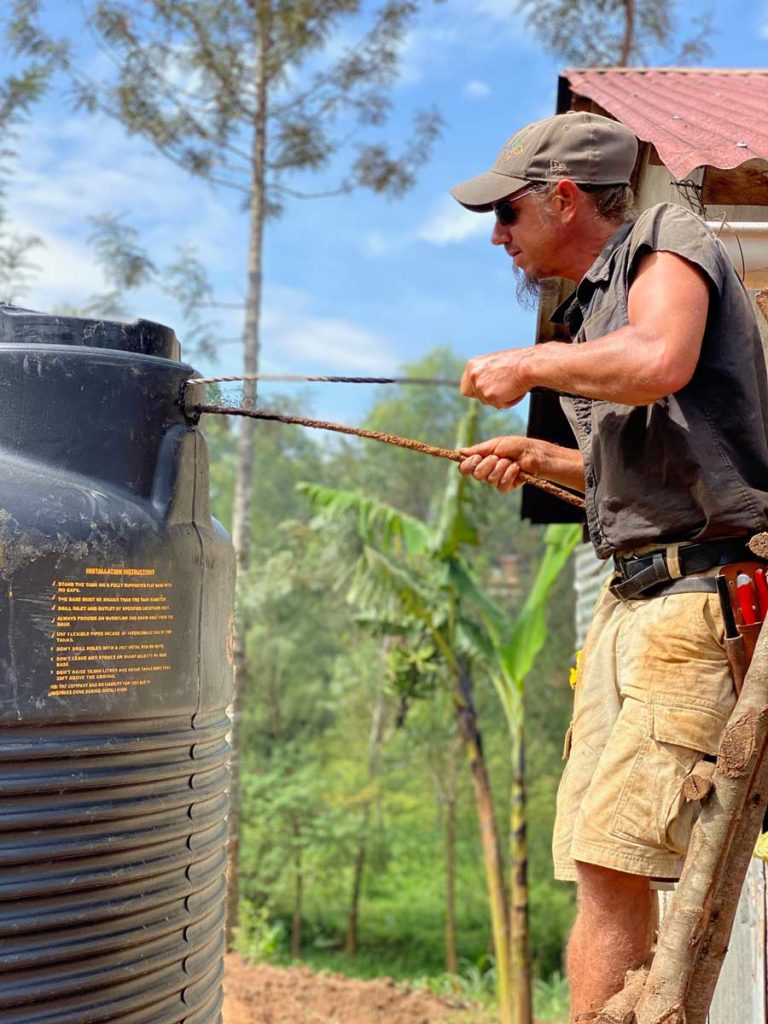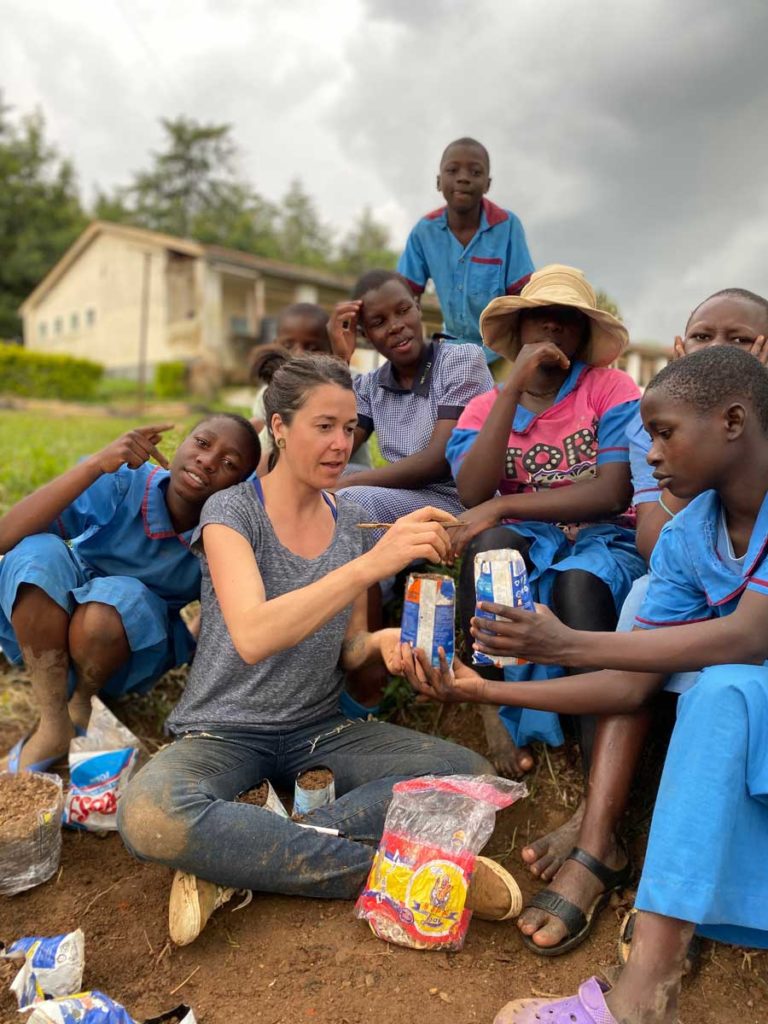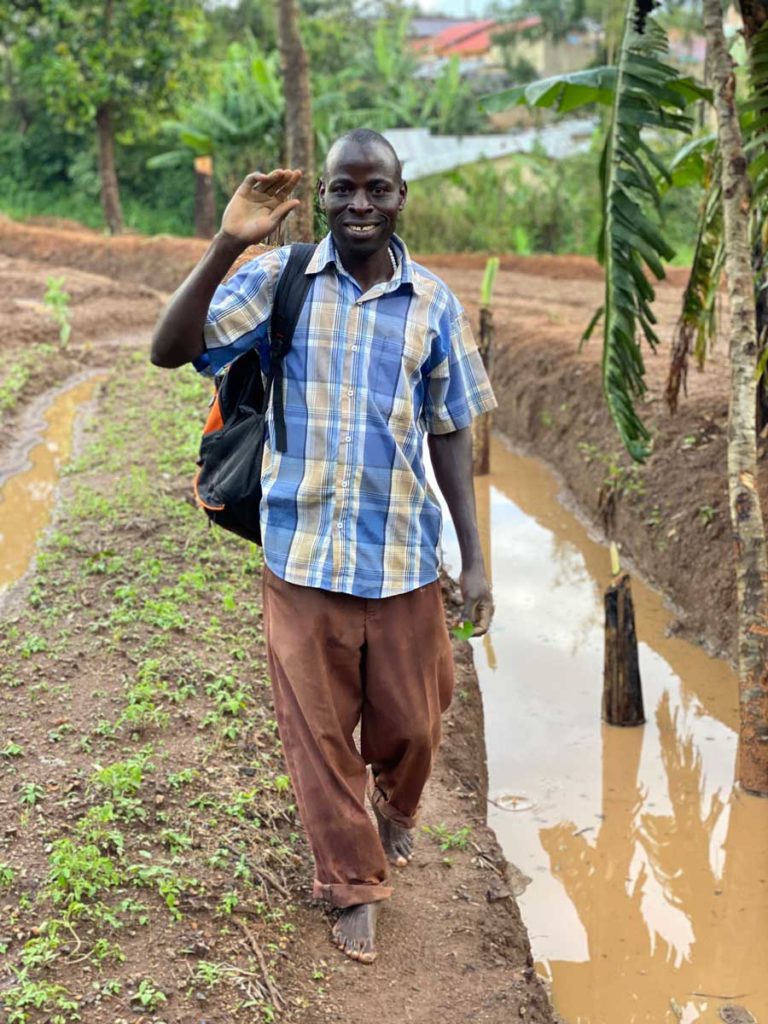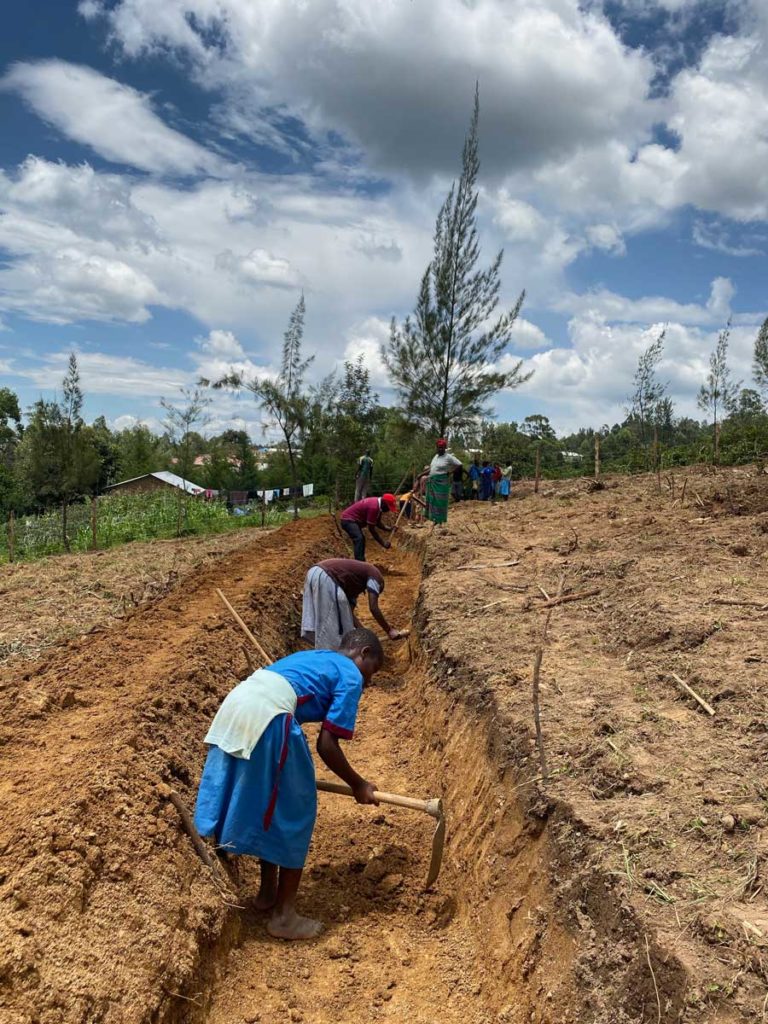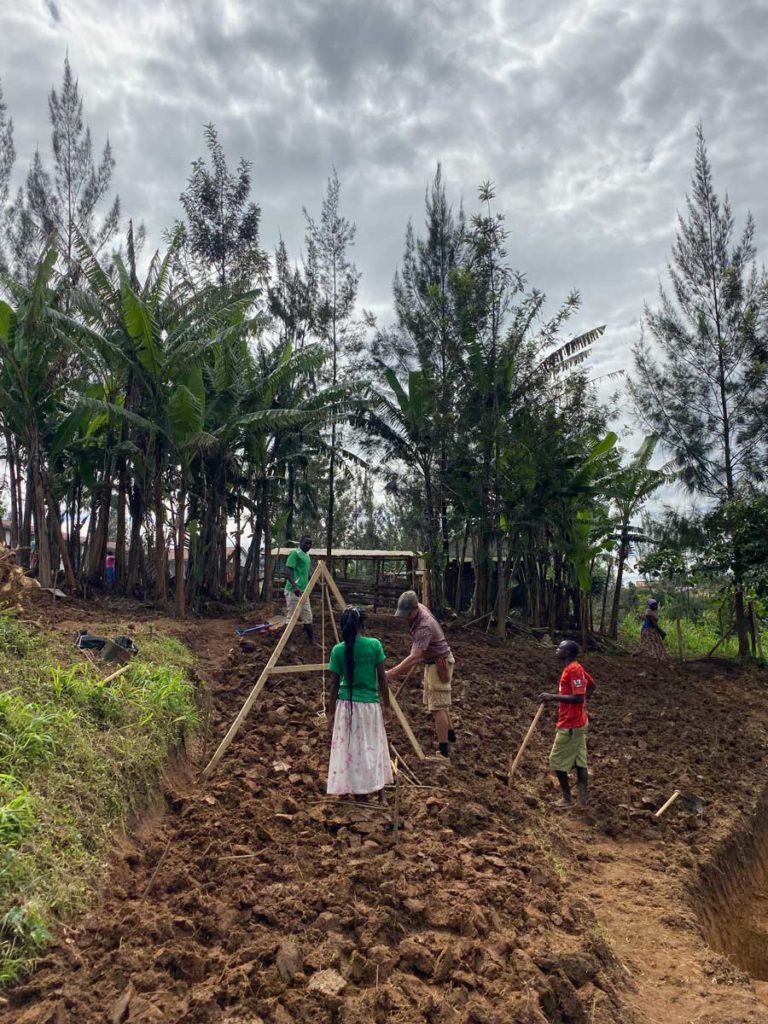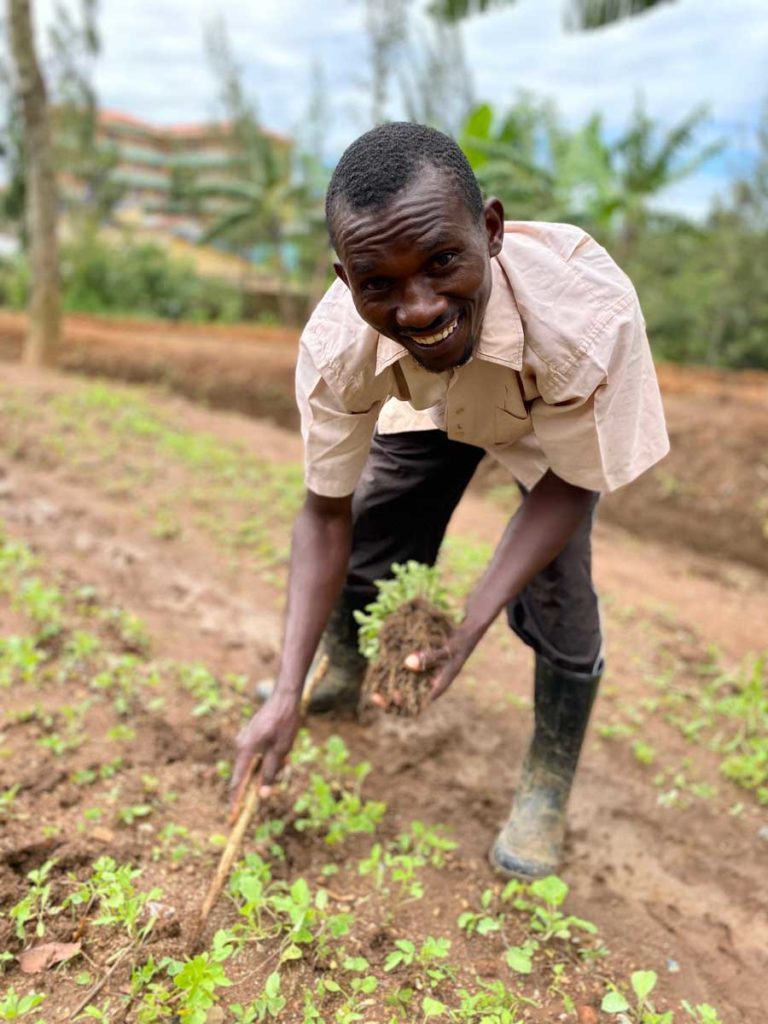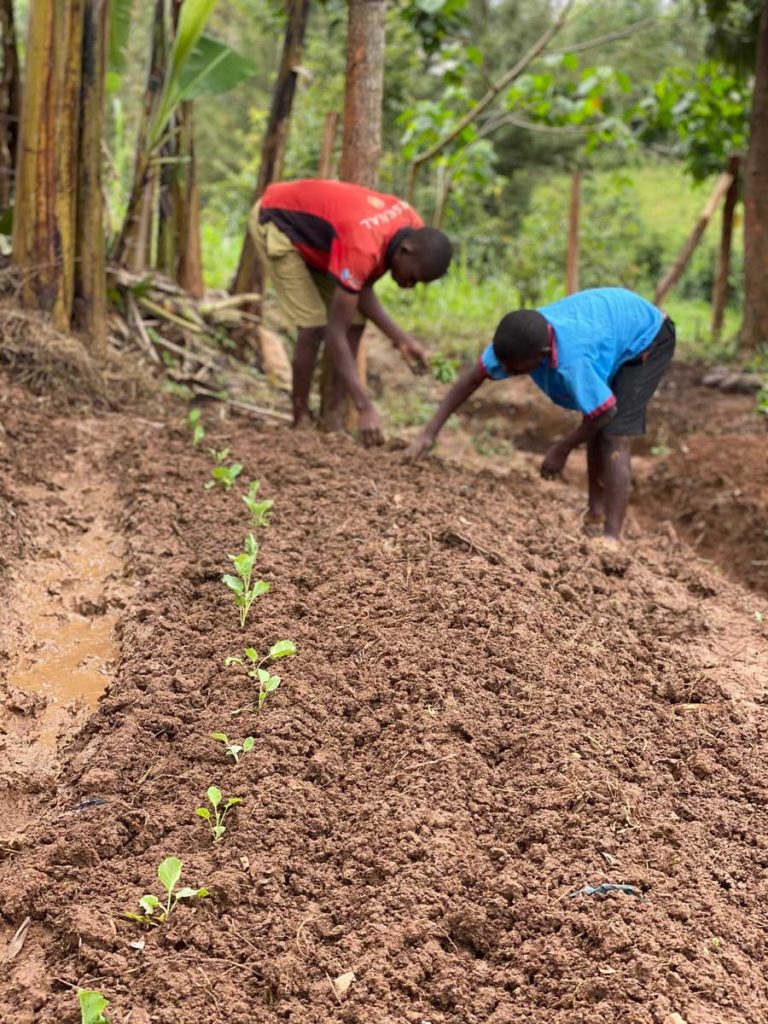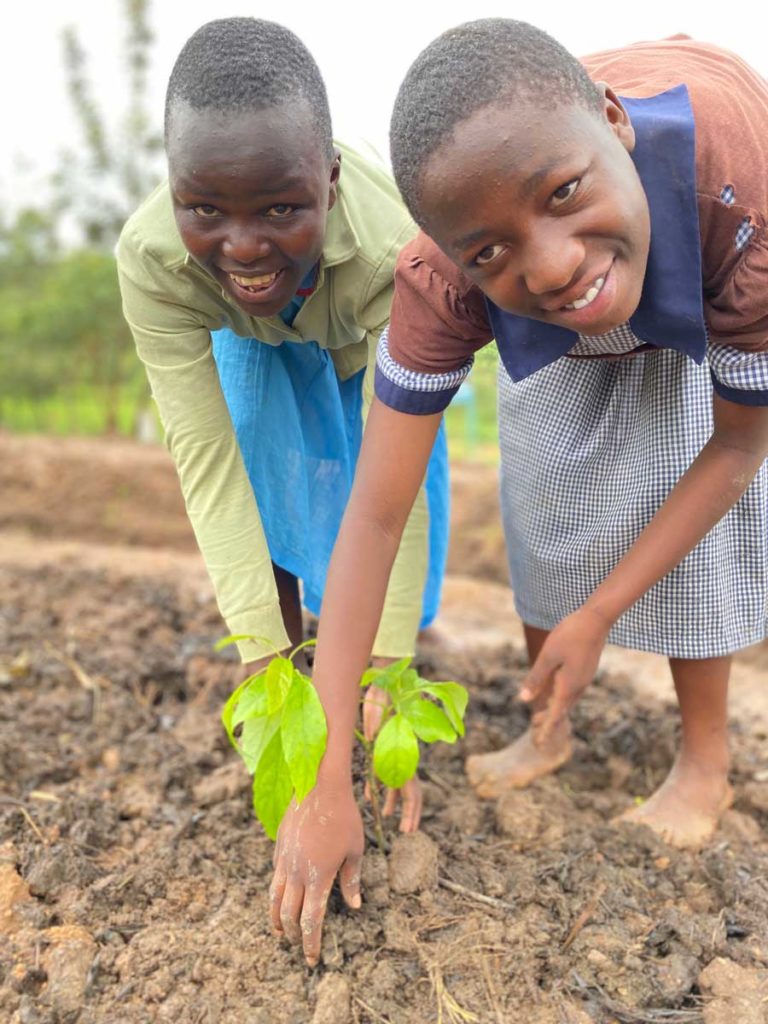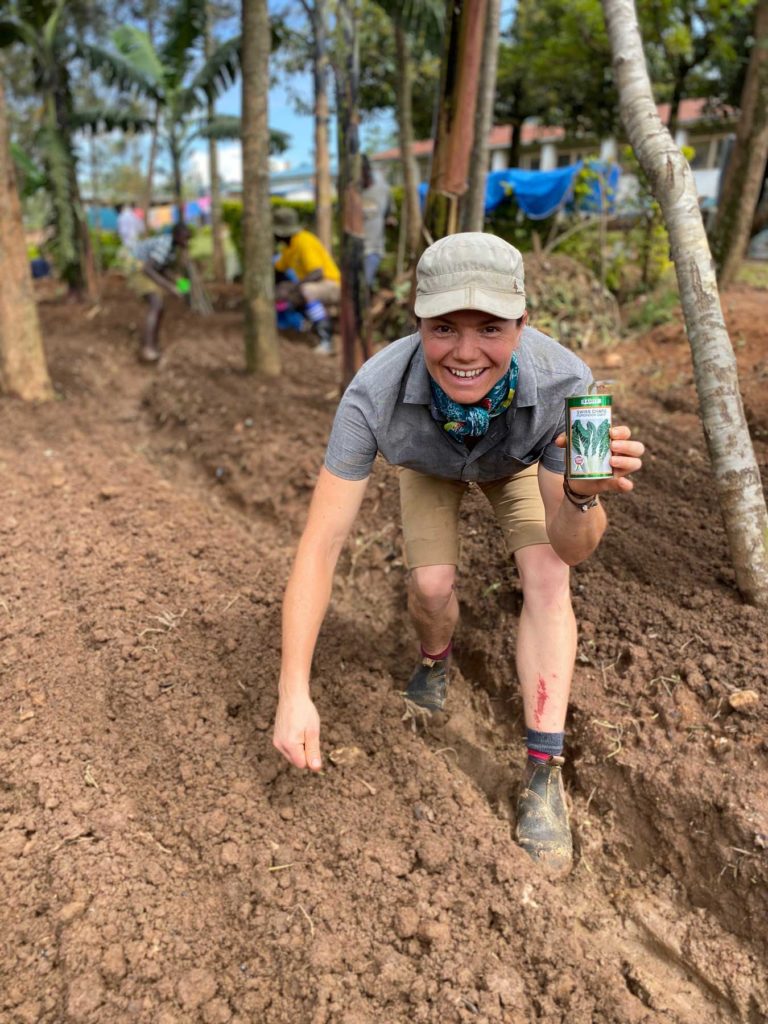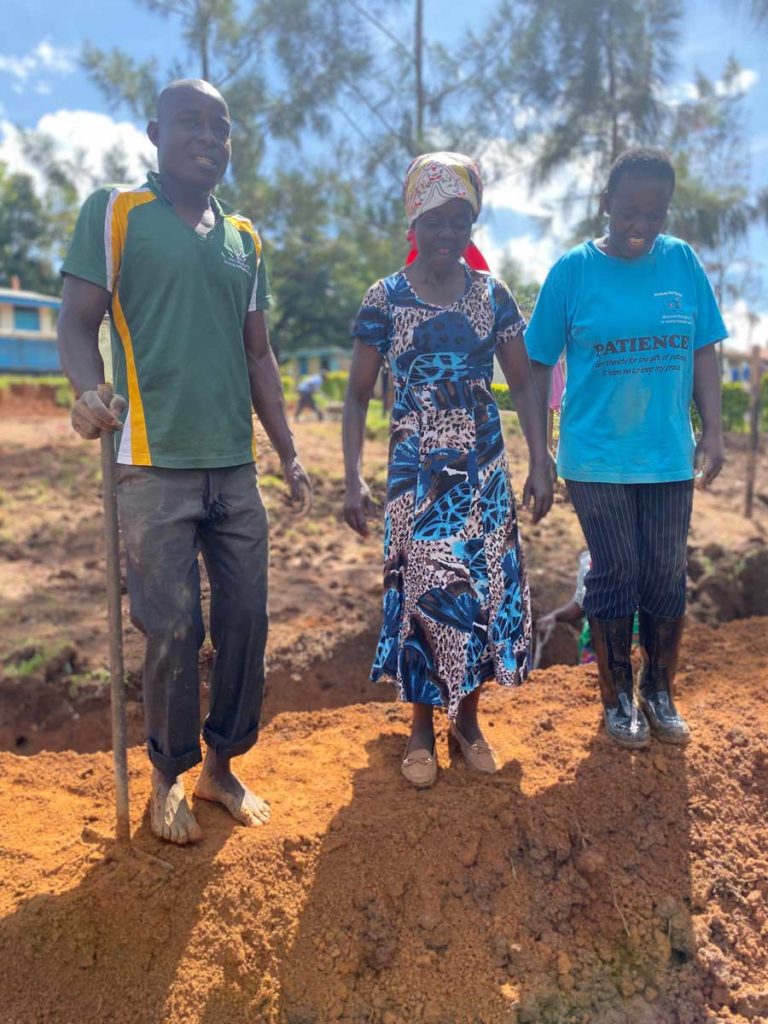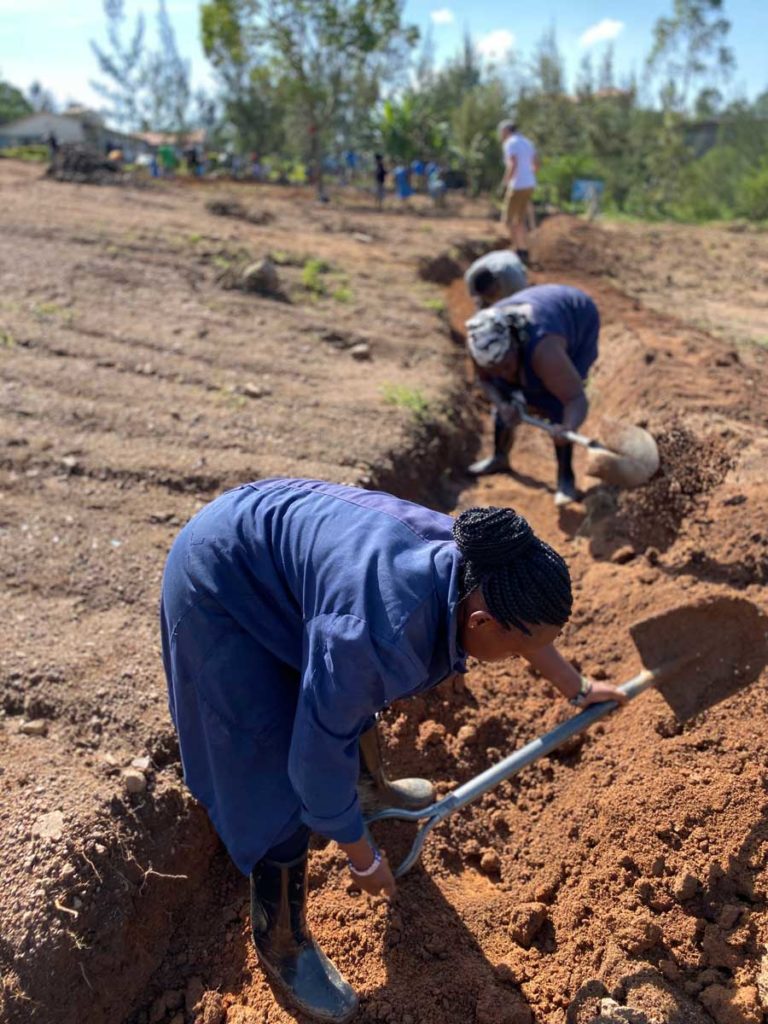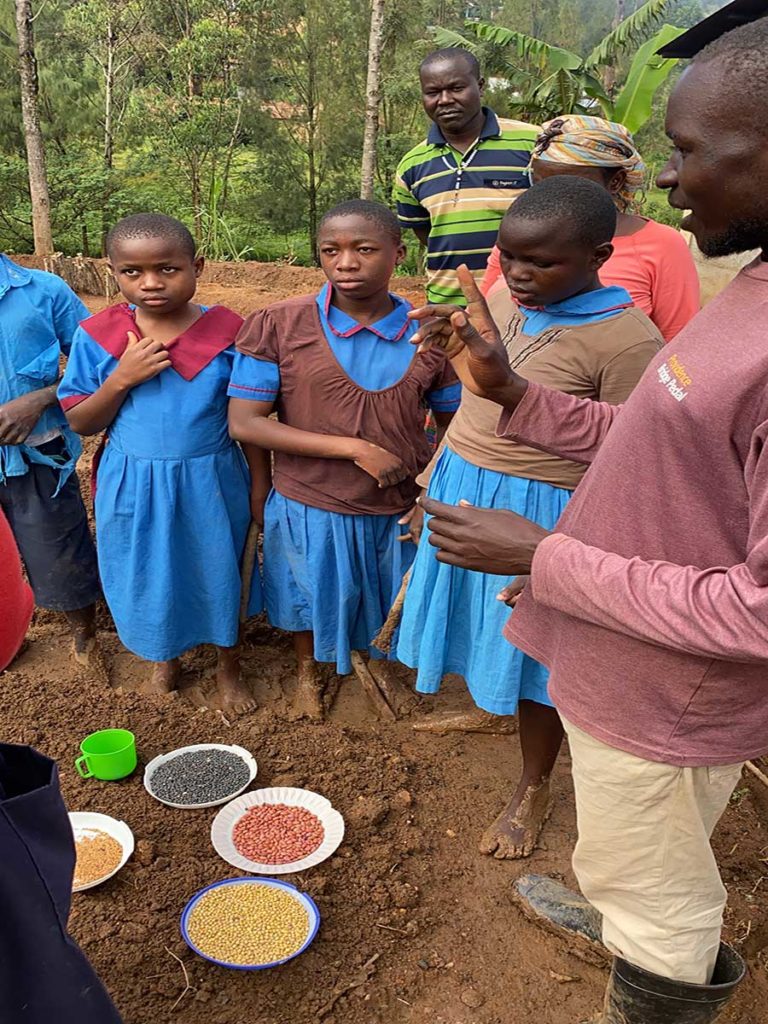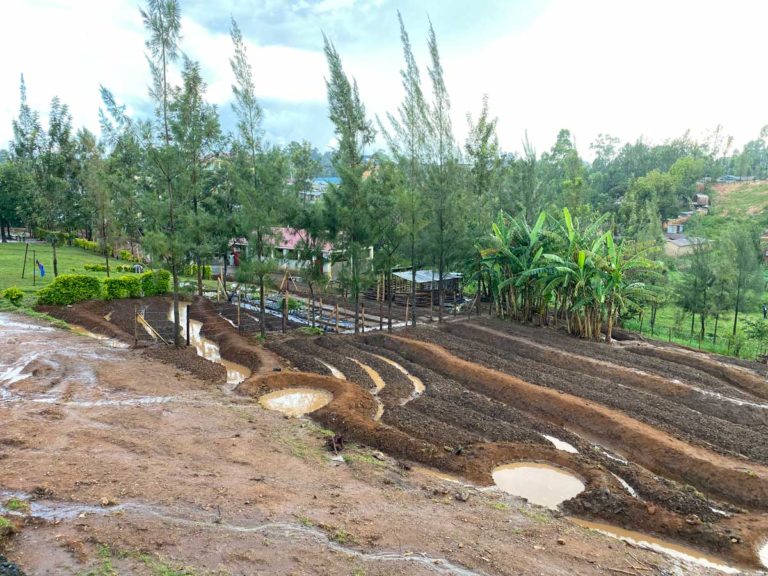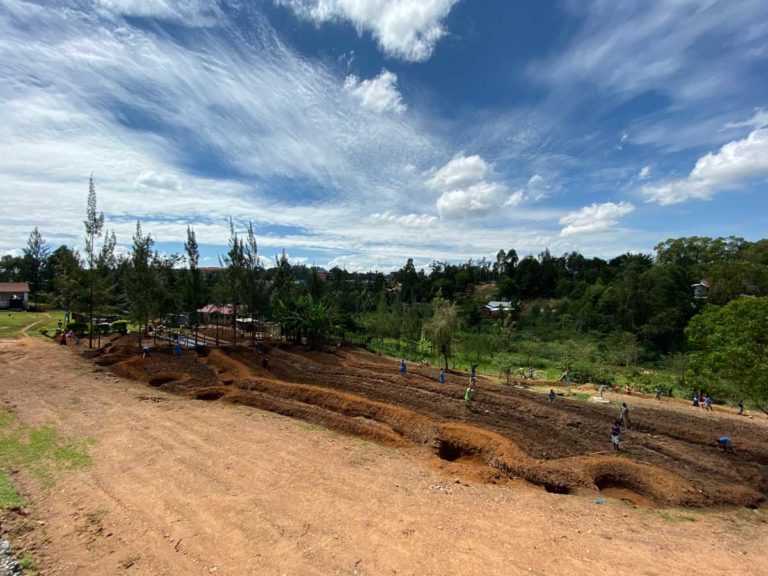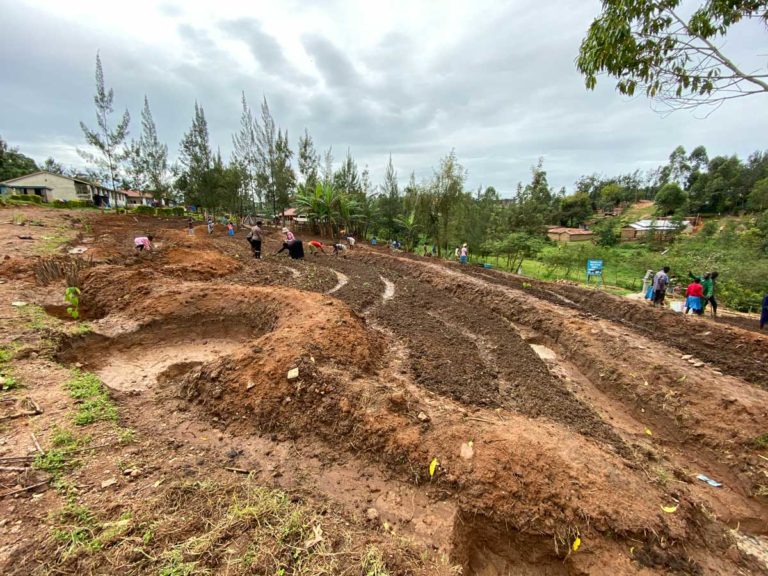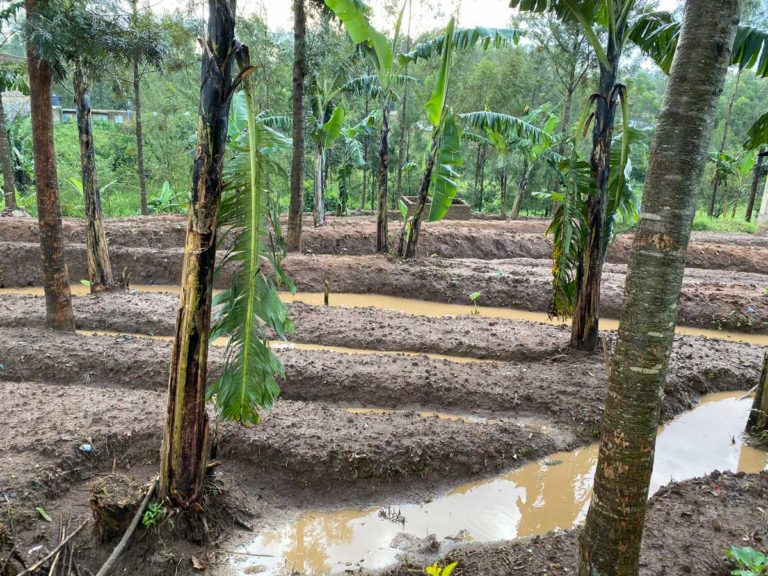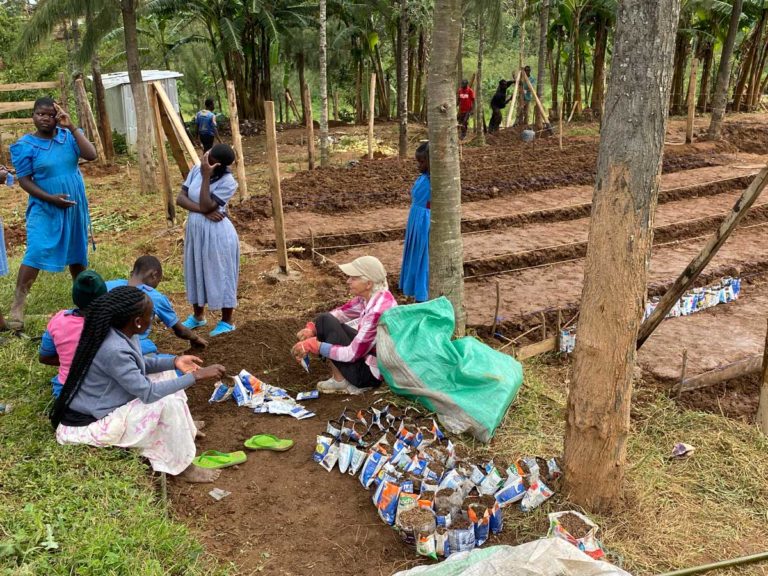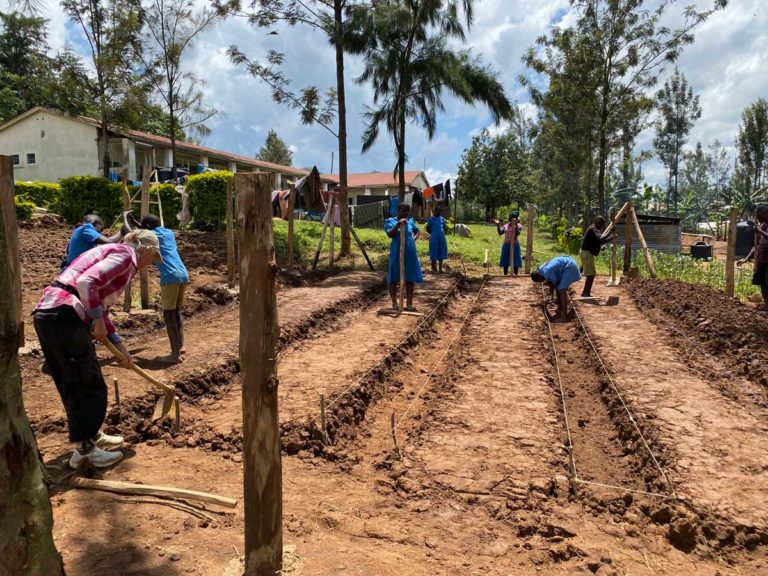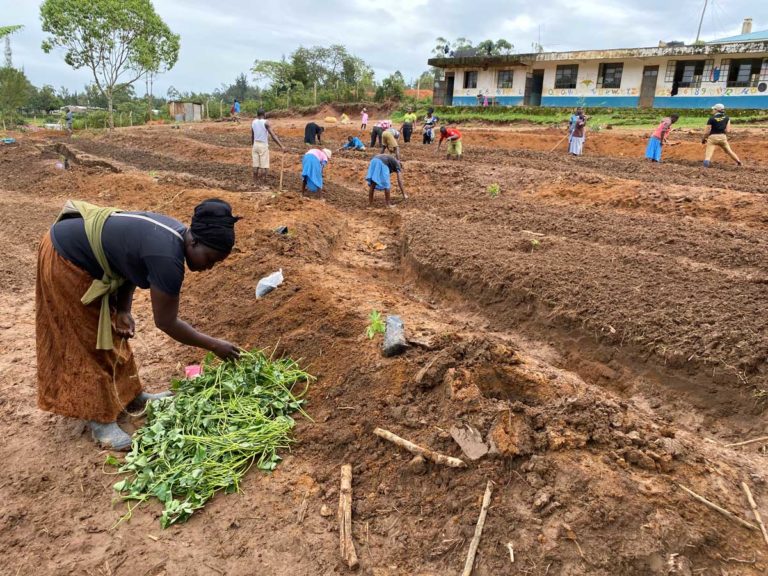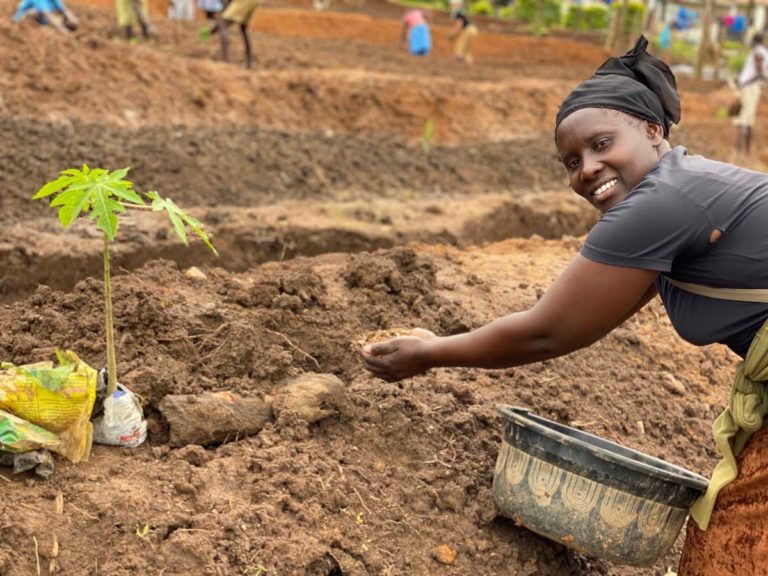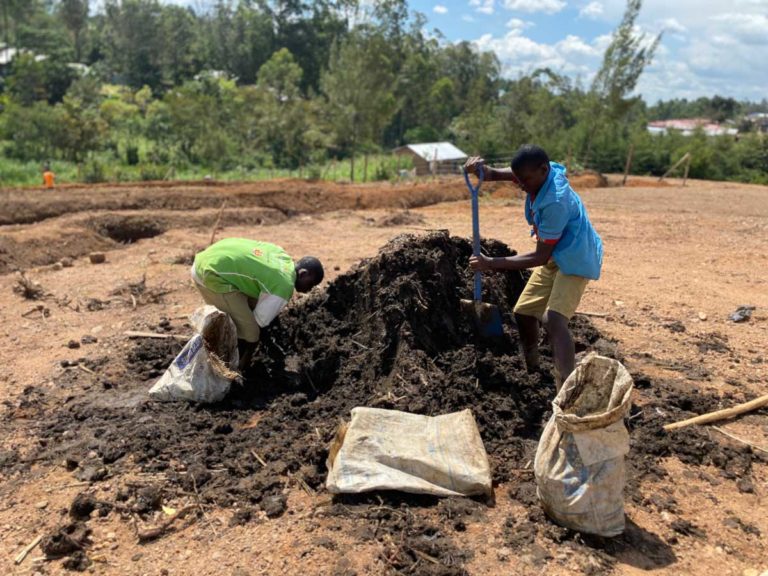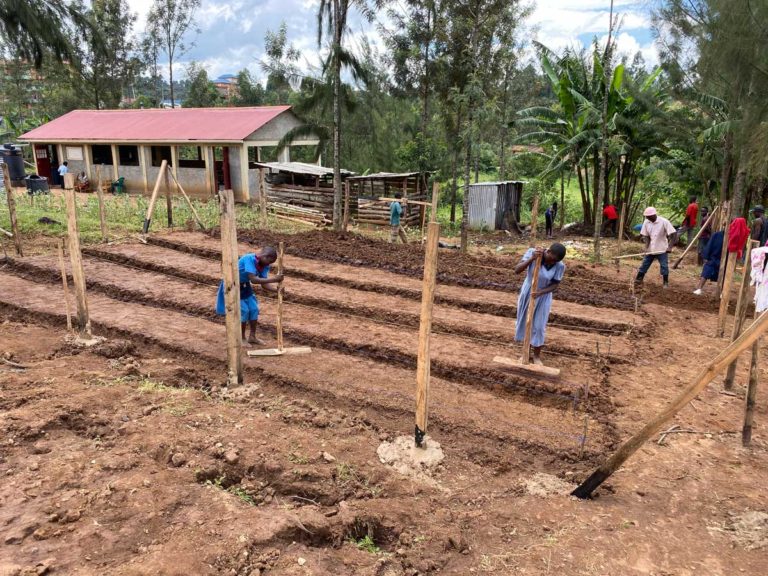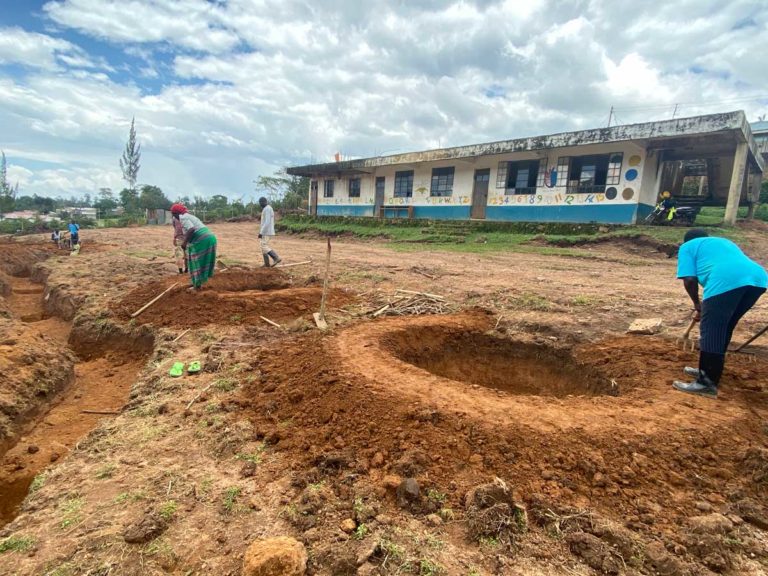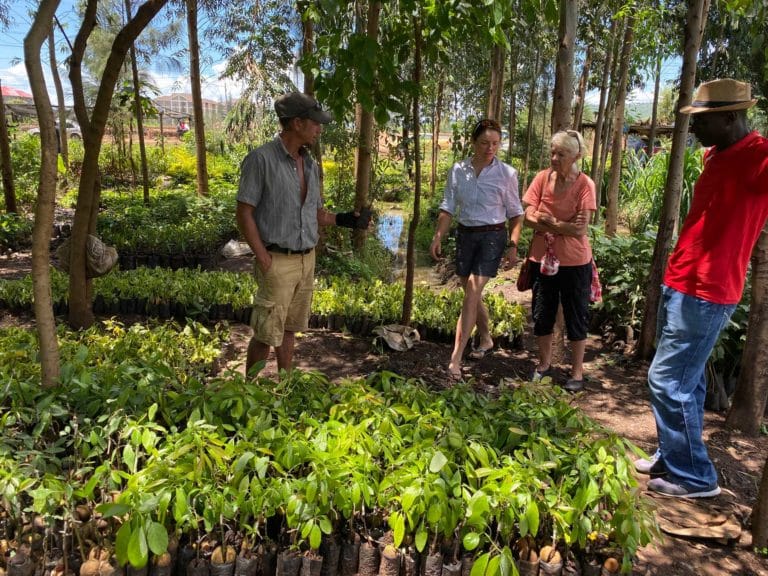---------- Kakamega School For The Deaf ----------
October 15 - 19/2019
Day 1 - 5
Our first day was spent assembling tools, organizing leaders with their teams and building our favourite surveying tool the A-frame. We had teachers, students, parents and our African and Canadian teams digging, sweating, laughing and dancing in harmony together. There were 52 people working in the field on our inaugural day and went down to an average of 30 people.
We began by converting the first 1400 sq ft area from a waterlogged erosion prone vegetable garden to a wonderfully designed soon to be food forest with deep swales to harvest the huge amounts of water that drains from the road and neighbouring houses right into the field.
By the third day at Kakamega School for Deaf Children we were putting the finishing touches on our first food forest on the property. We levelled all of our swales, measured out and prepared our beds and paths, planted banana trees and arrowroot. We even calculated how many litres of water our system can harvest which is approximately 105 000 litres!
The fourth day we were tasked with breaking in the land for our next 3000 sq ft food forest area. We worked in a long line uphill. It was a great feat of humanpower and we finished right before the big afternoon thunderstorm! The fourth night it rained all night so we worked in mud for most of the day but spirits were high and we accomplished a lot! Swales in the second area of the property were measured and are about halfway done now.
One good thing about the rainy season coming a month early is that we got to see our swales in action in the area we completed a few days ago.
Our first 5 days in Pictures
OCTOBER 16 - 25/2019
Day 6 - 11
Today we were tasked with breaking in the land for our next 3000 sq ft food forest area. We worked in a long line uphill. It was a great feat of humanpower and we finished right before the big afternoon thunderstorm! It rained many nights so we worked in mud for most of the days but spirits were high and we accomplished a lot! Swales in the second area of the property were measured and got started on day 6.
One good thing about the rainy season coming a month early is that we got to see our swales in action.
On the 7th day we fully plant the first section we had completed earlier in the week. Josephat gave a lesson on soil health and each team leader taught their groups about plant spacing, intercropping, ideal locations for each crop and how to have fun in the field! The children are already benefiting from the vocational training and they will be well fed with nutritious organic food for years to come. The site is close to the road and will serve as a beautiful demonstration of regenerative agricultural for the locals. This is how we hope to spread the knowledge of earth repair and social cohesion.
All the torrential rains we’ve been getting daily and nightly have given us an opportunity to observe where all the water runs on the property. Some of our berms were washed away and banana circles filled with silt as the water came with such force causing us to reassess our design. Mother nature taught us a lesson and we fixed the problems! We made even bigger banana circles and more swales as we realized what an enormous amount of water actually comes into the area. It was a challenge but a wonderful learning opportunity.
On day 8 we started our tree nursery and began planting seeds. The team has been digging swales for days trying to accommodate the huge amount of water that collects and runs off the land during rainstorms and we had finally done it! The design is exceptional and will only need a little tweaking over the next few months as we observe and adapt the system to the flow of water. John and Kisato, the farm managers we trained are diligent in maintaining the food forest as we ensure the future success of our project here.
We planted 386 trees and 105 bananas on the property! There were mangos, avocados, papayas, jackfruit and nitrogen fixing trees like casuarina, gravelia, croton and many more. We planted over 1000 seeds in the tree nursery as well! We also planted vegetable seeds and seedlings.
On the last day we made the final adjustmens and touch ups like measuring the swales again for the last time. There are some small things left to do but we succeeded at completing the project.
